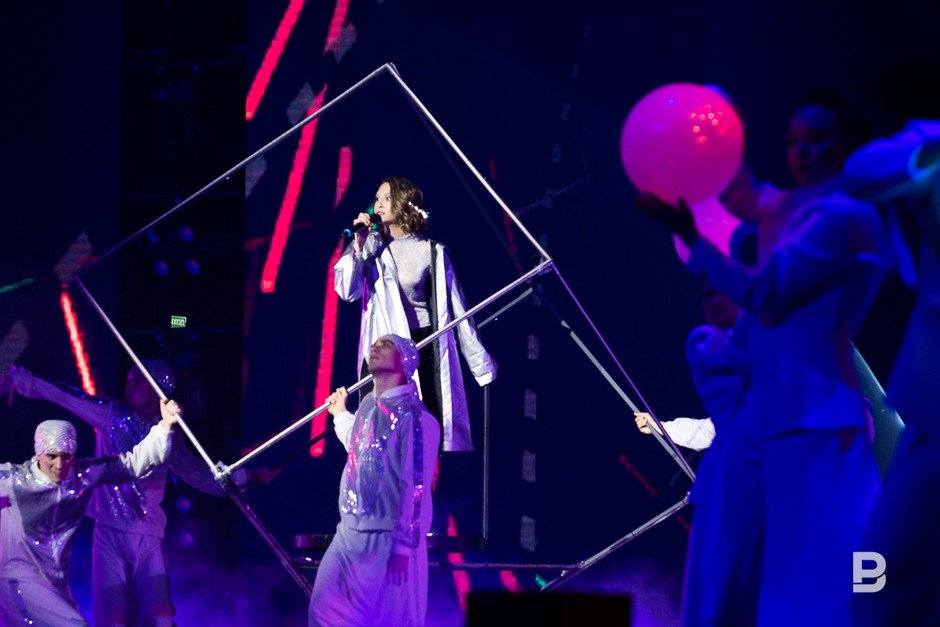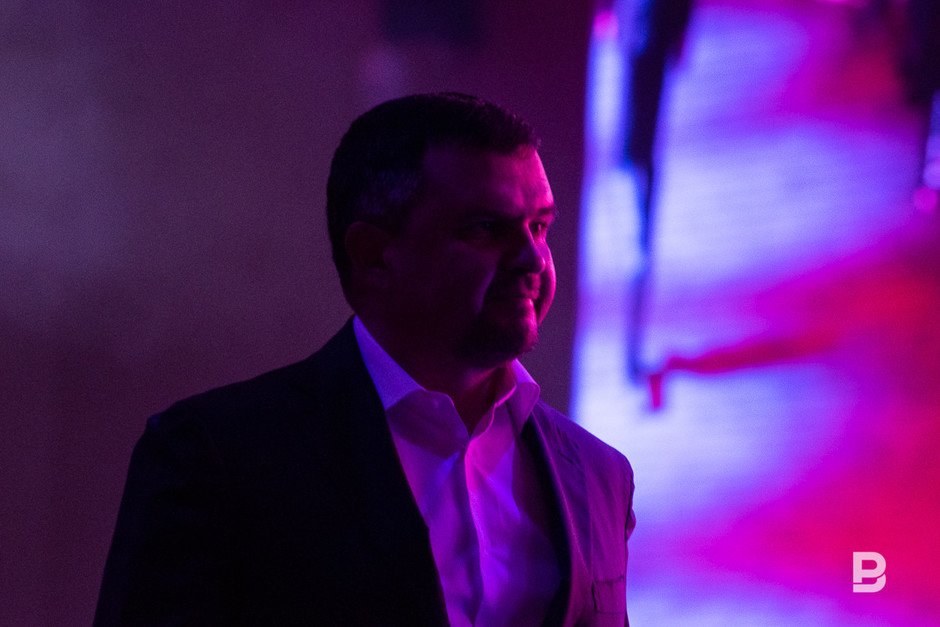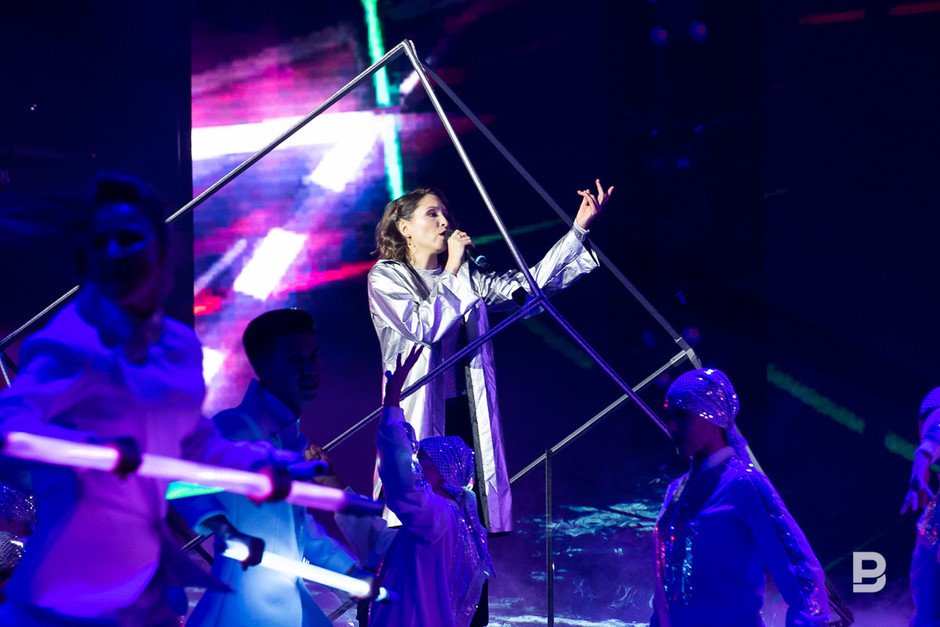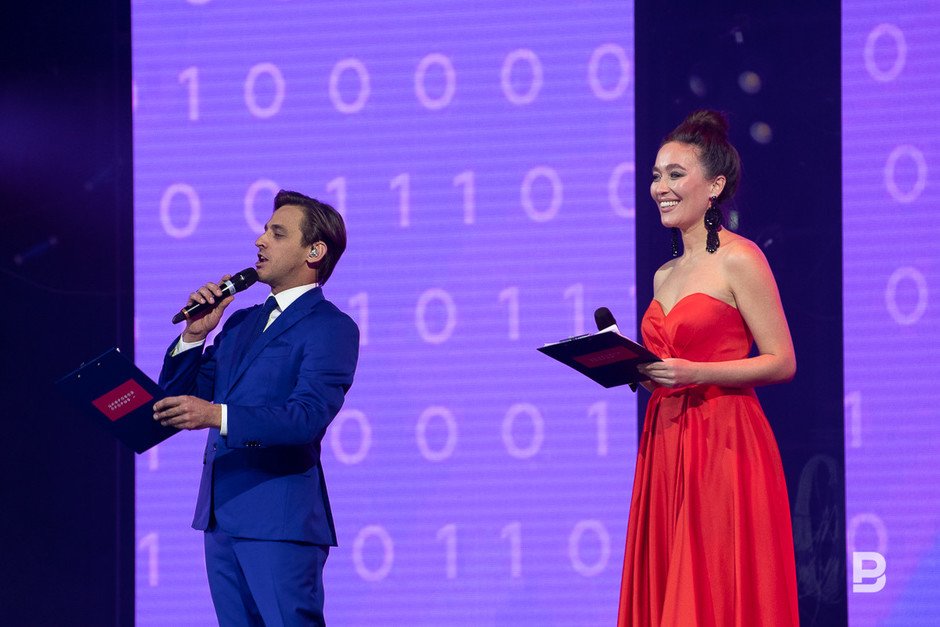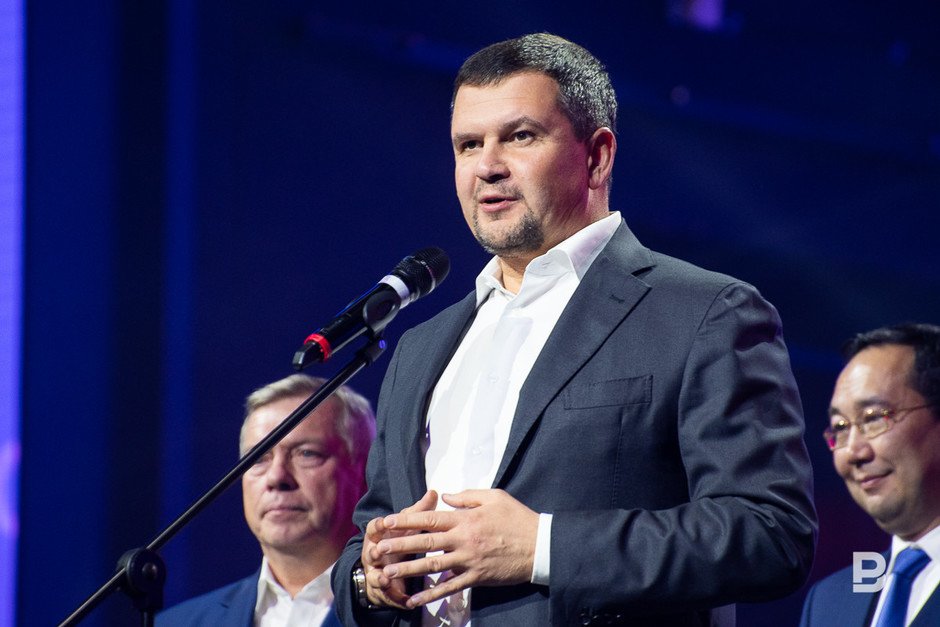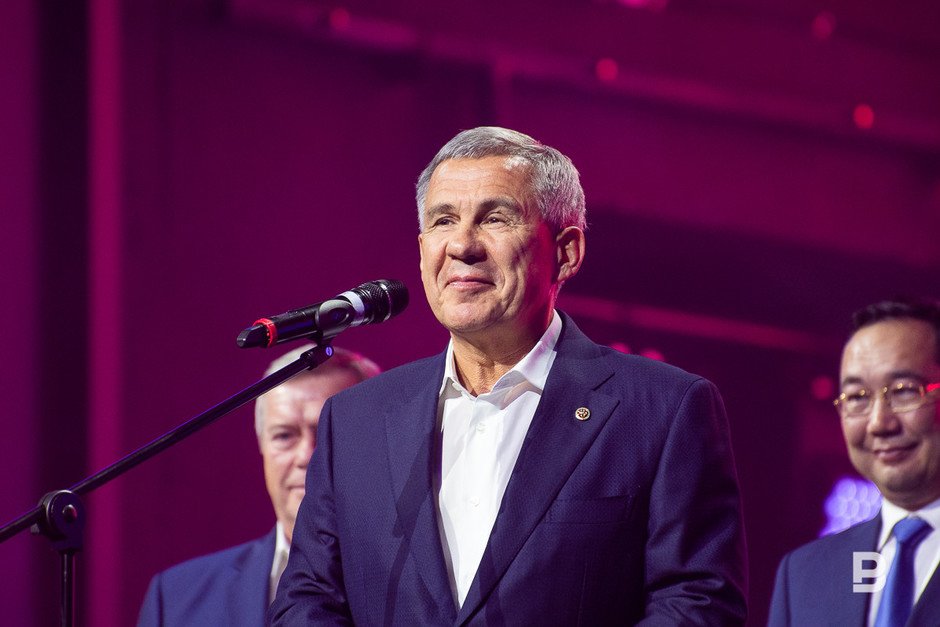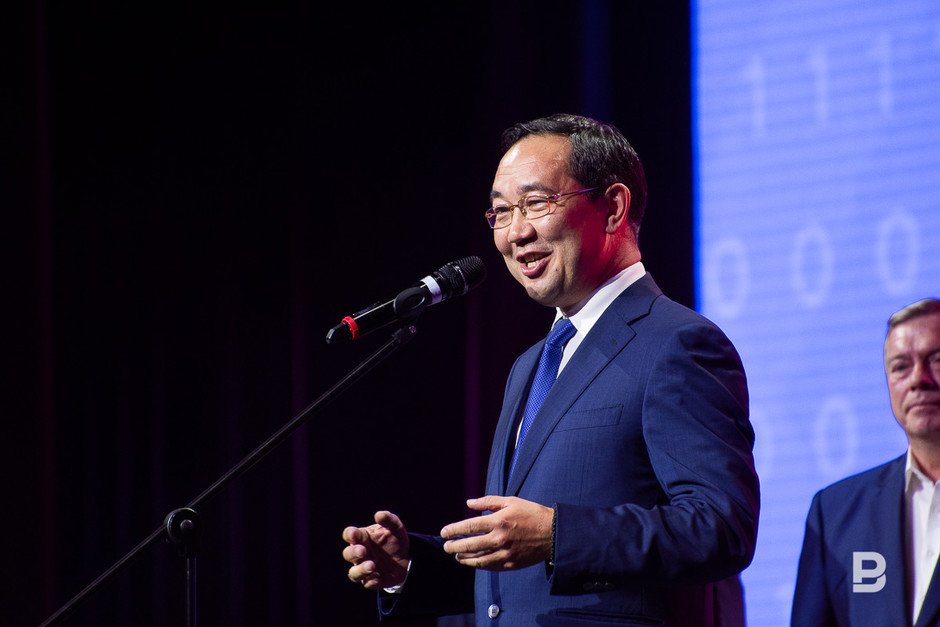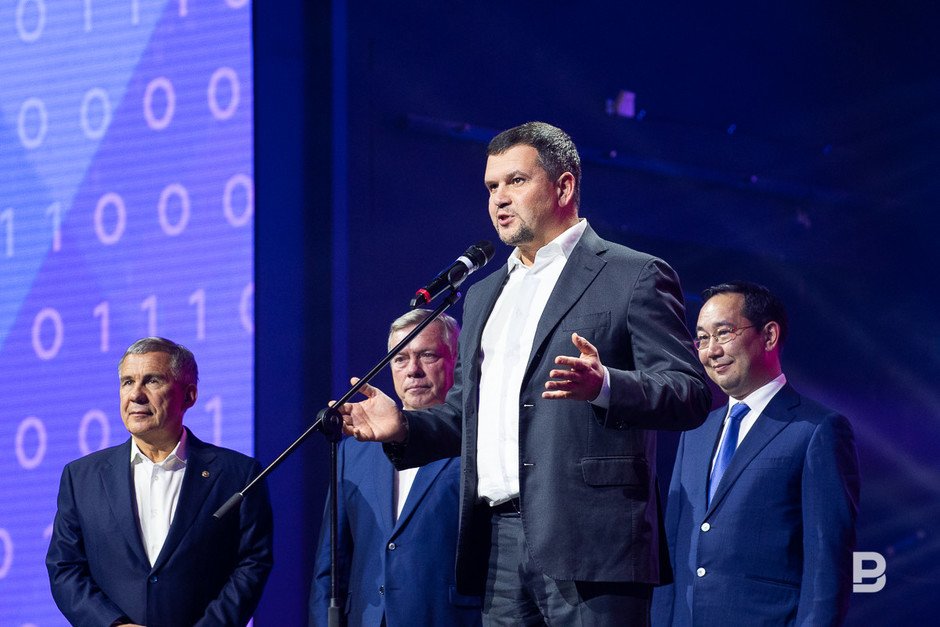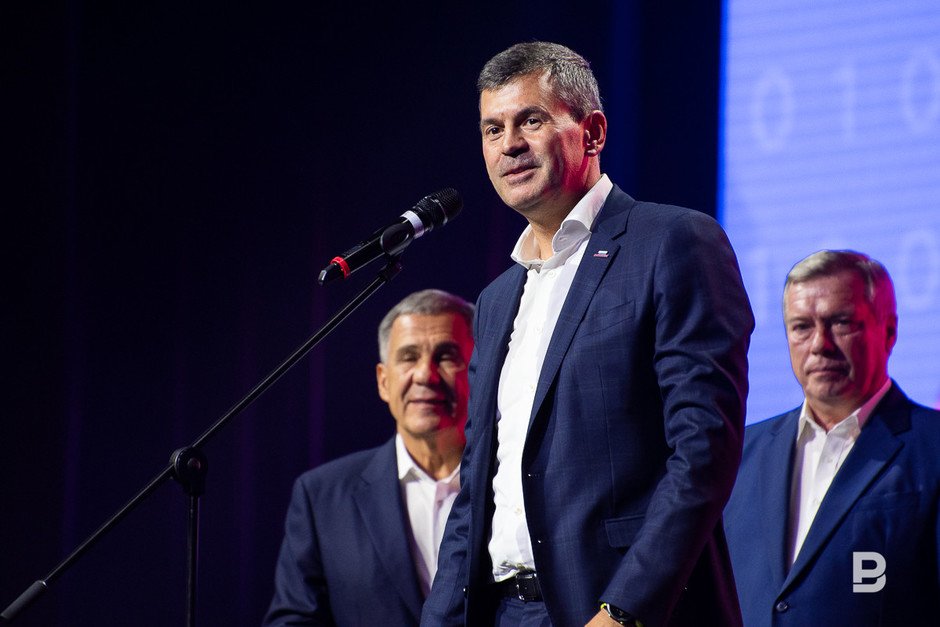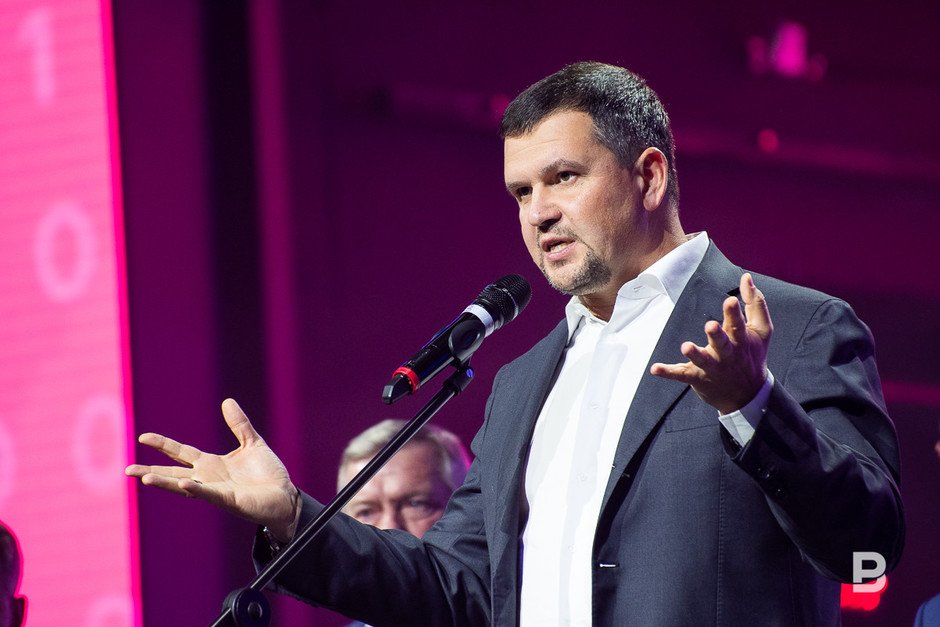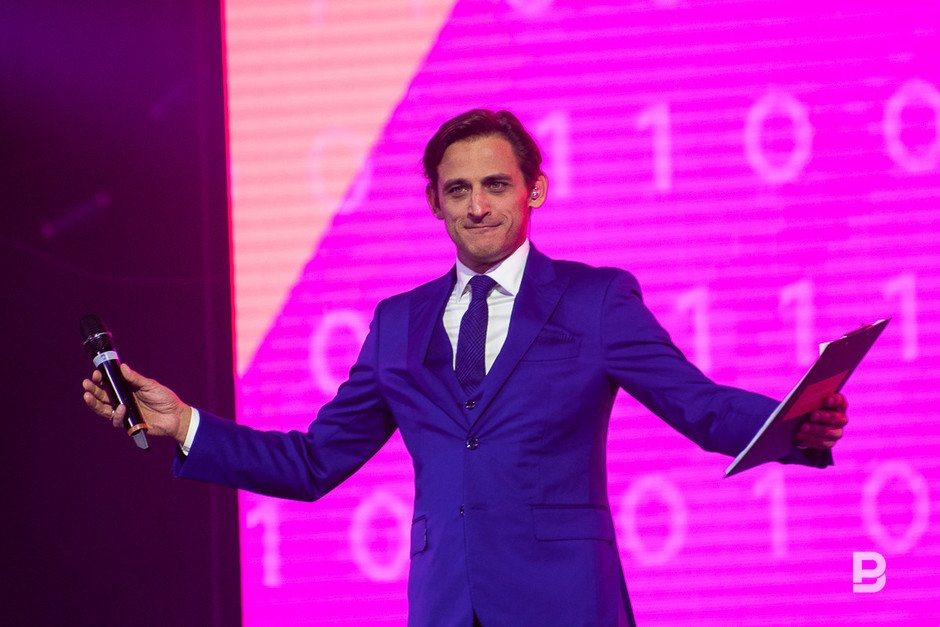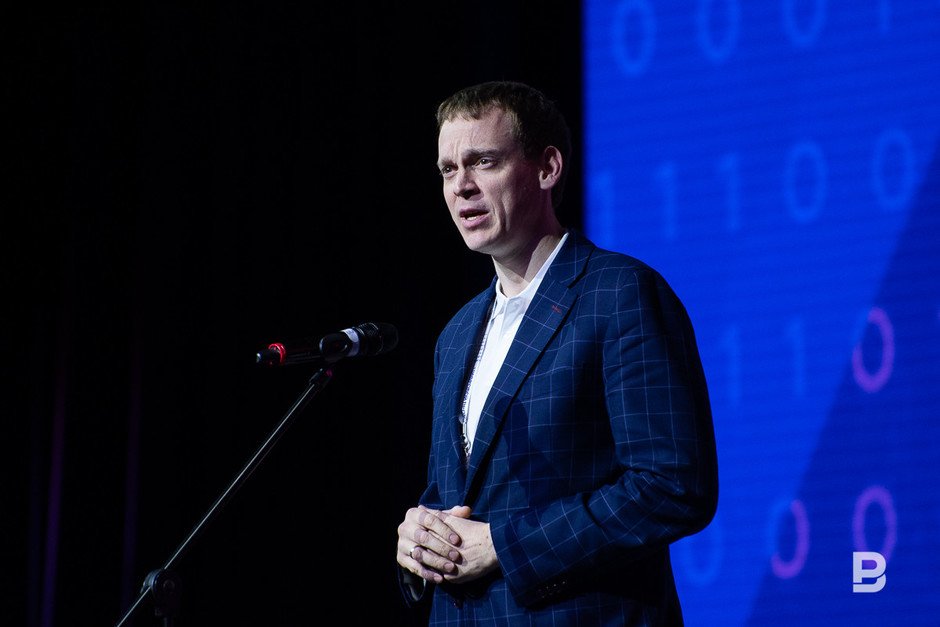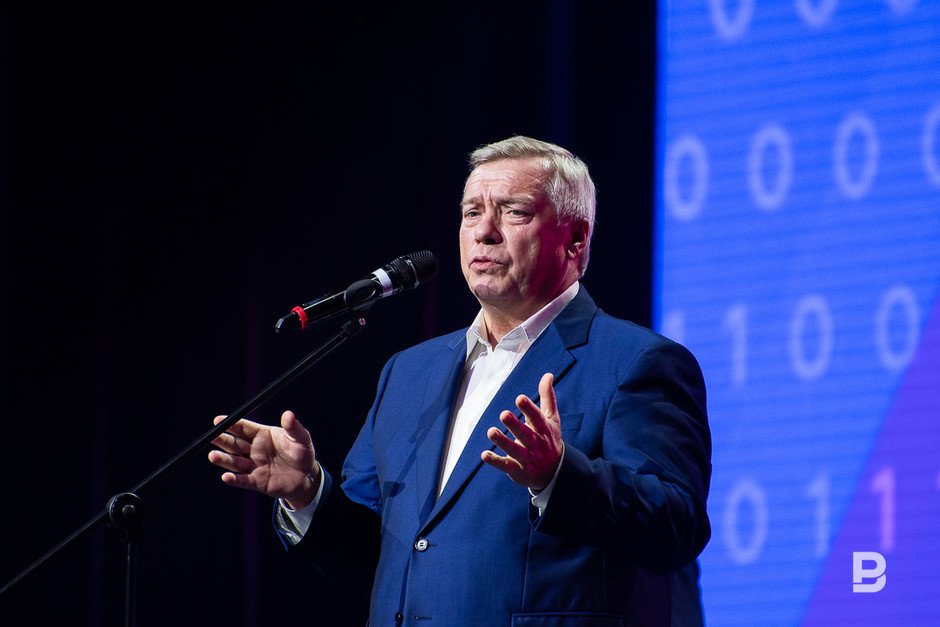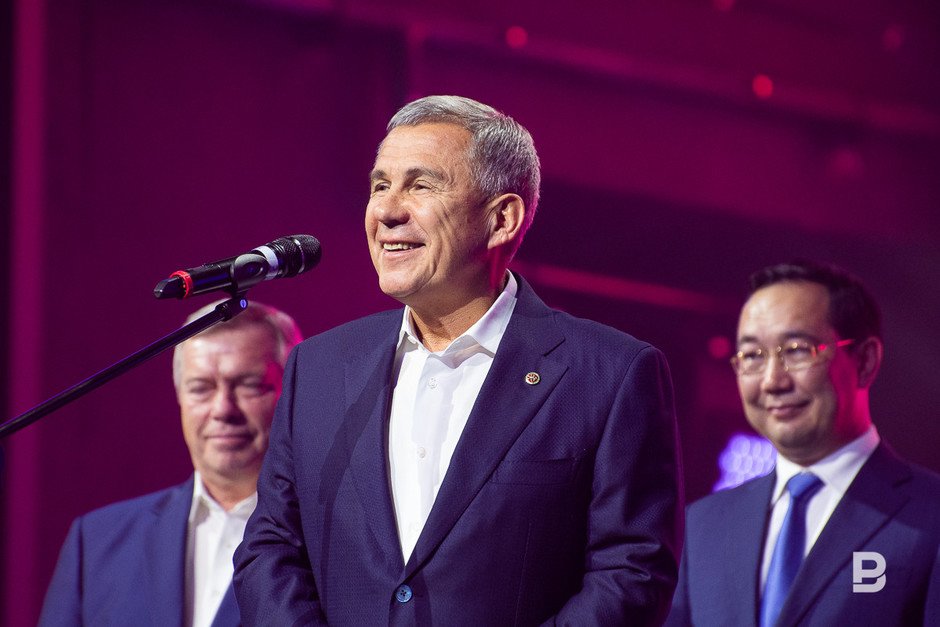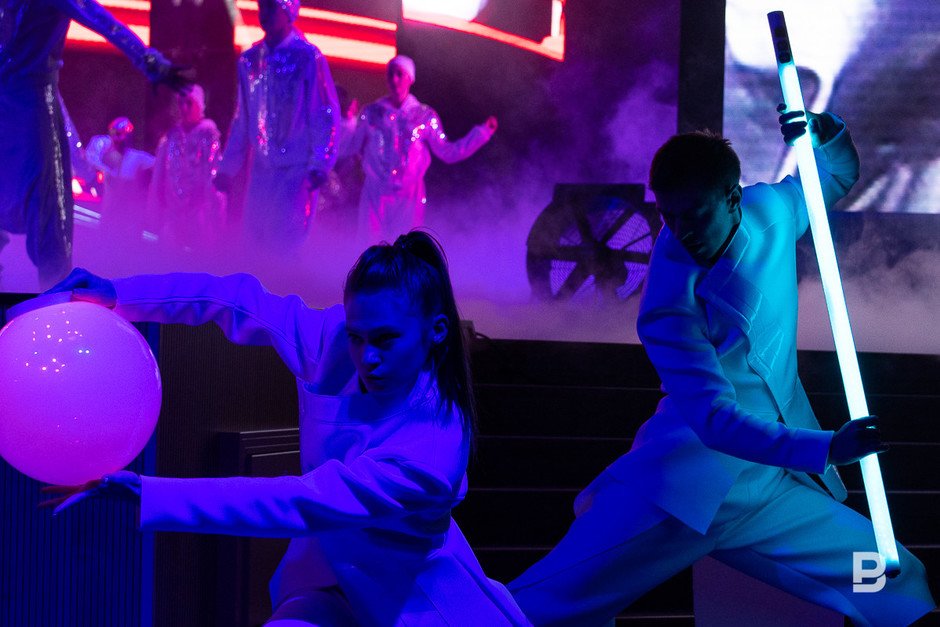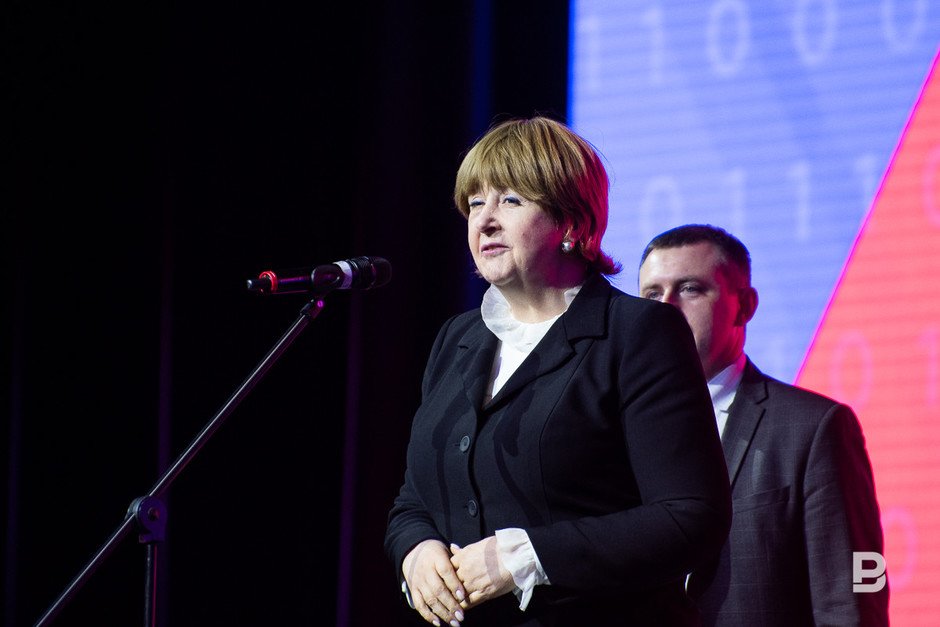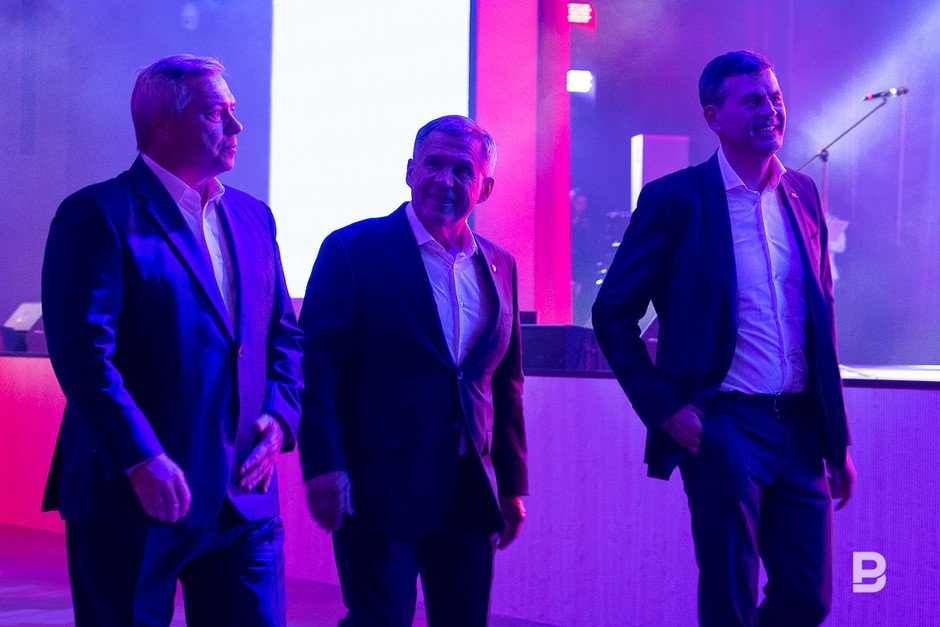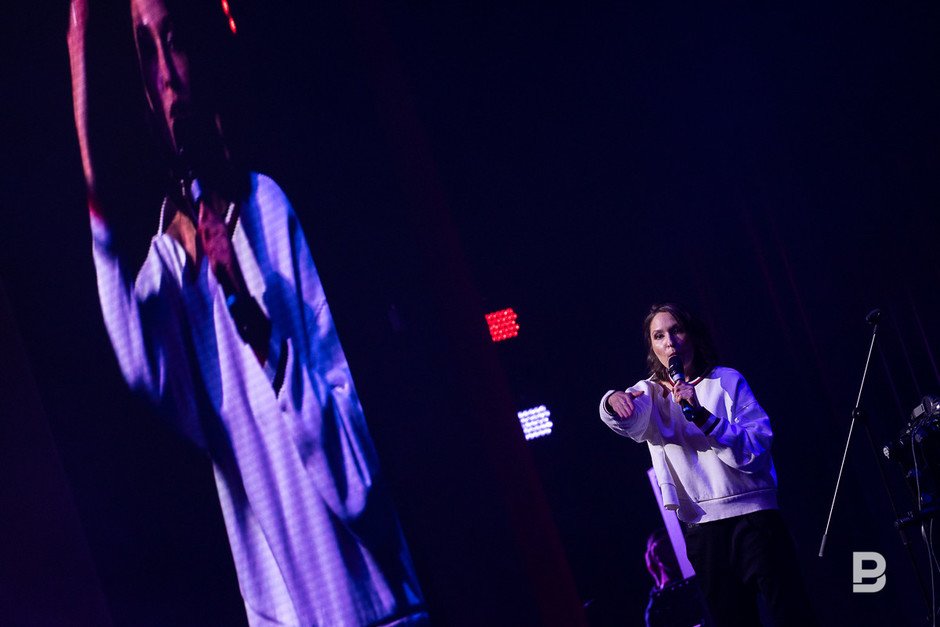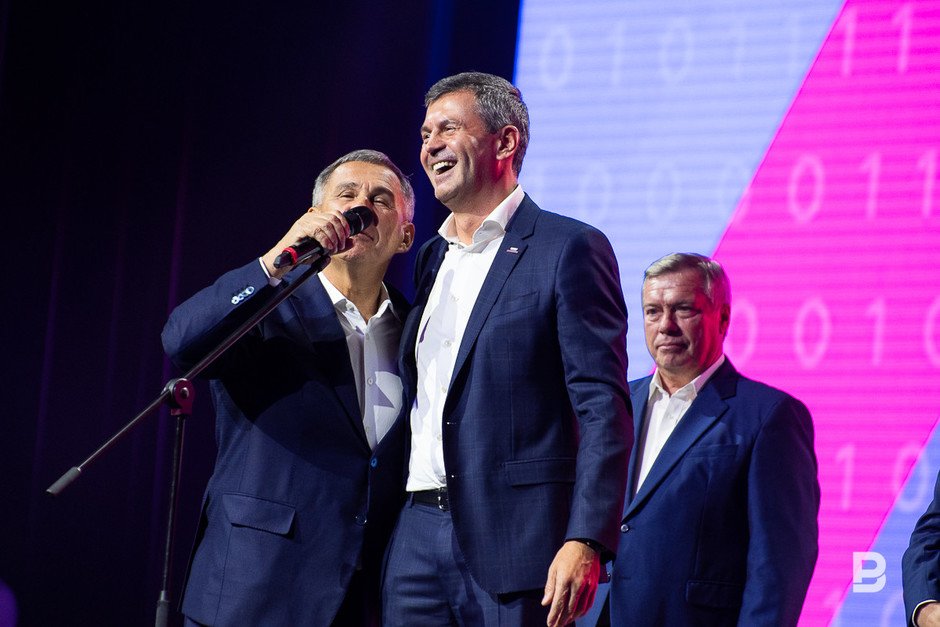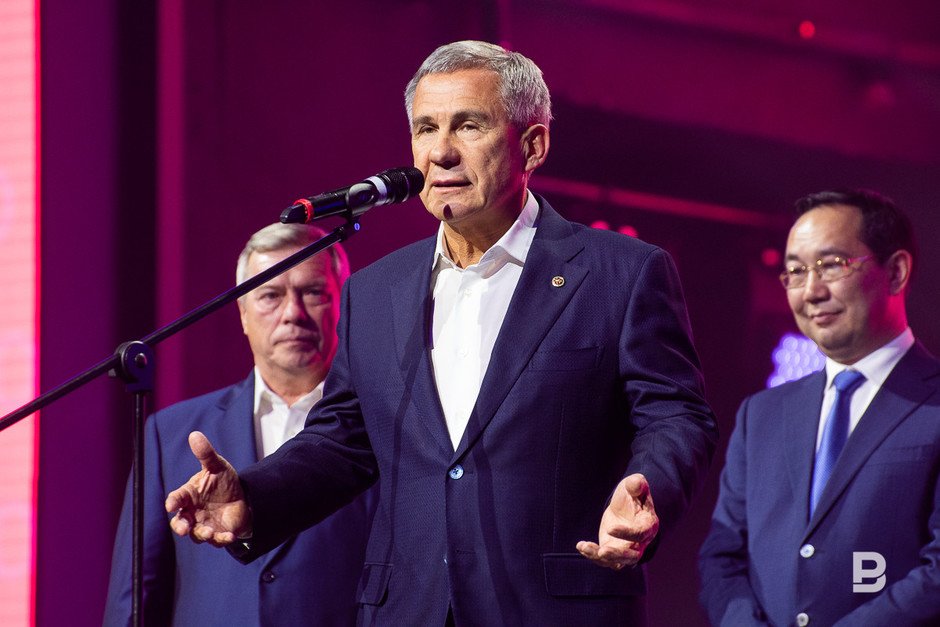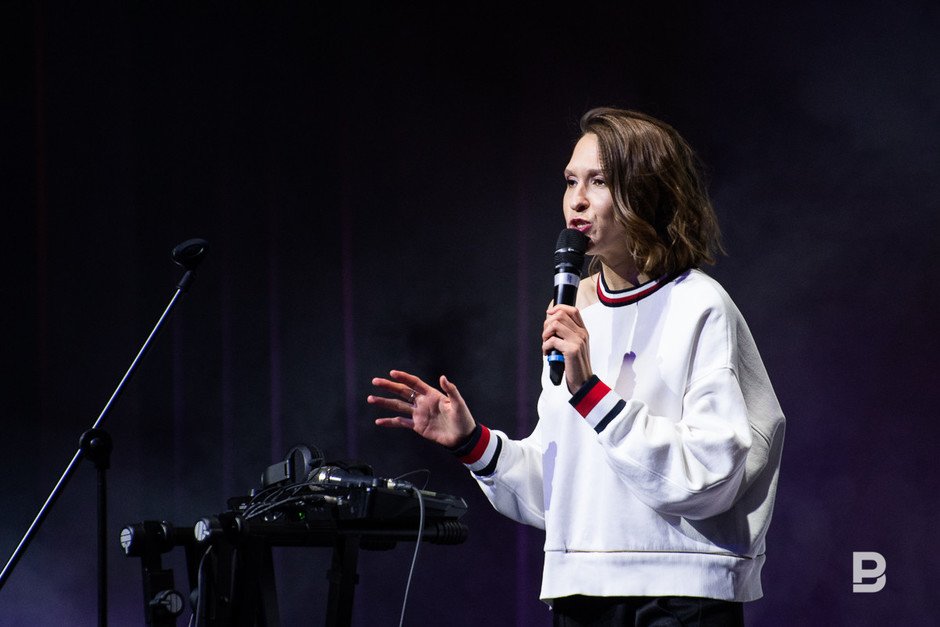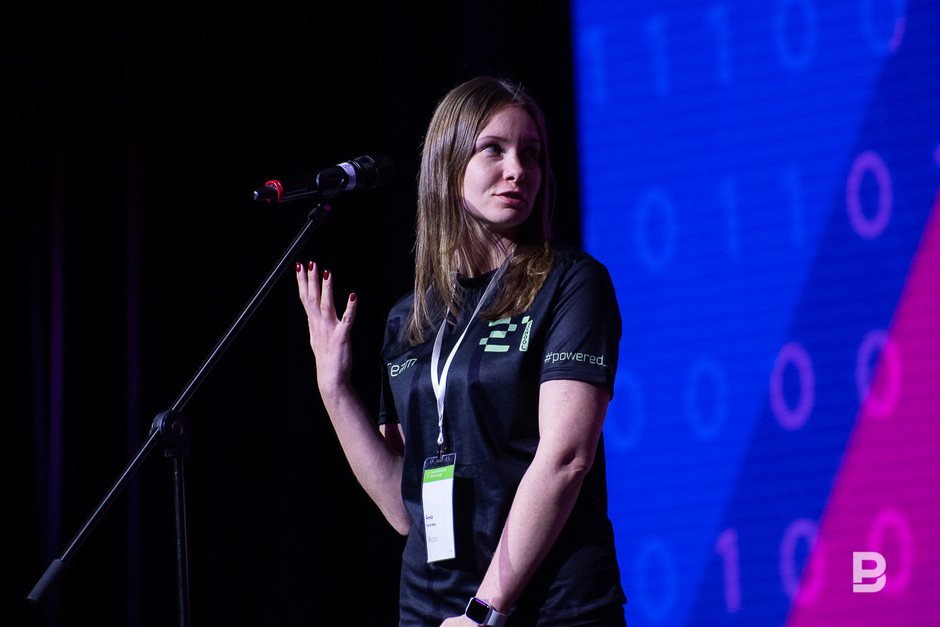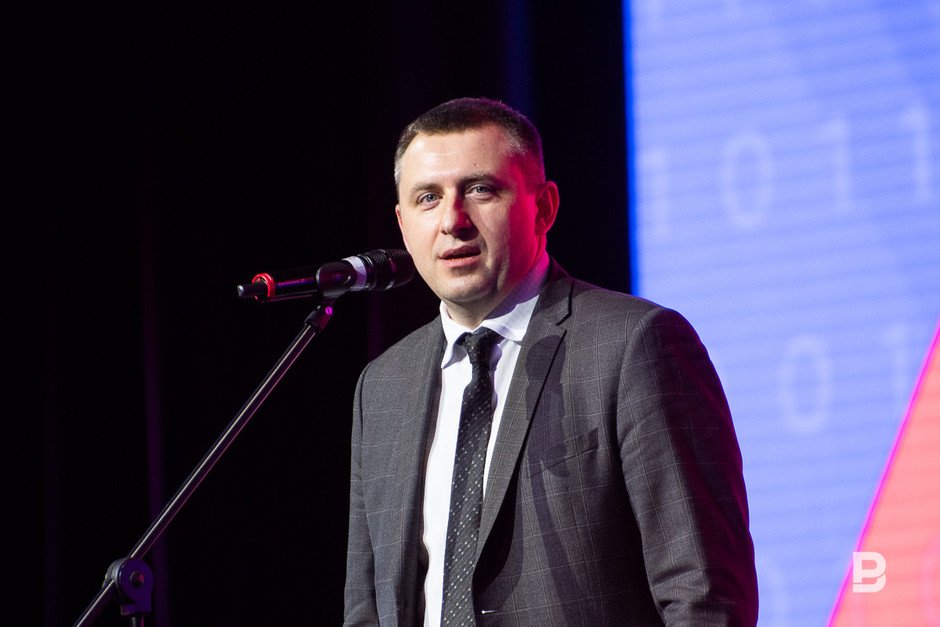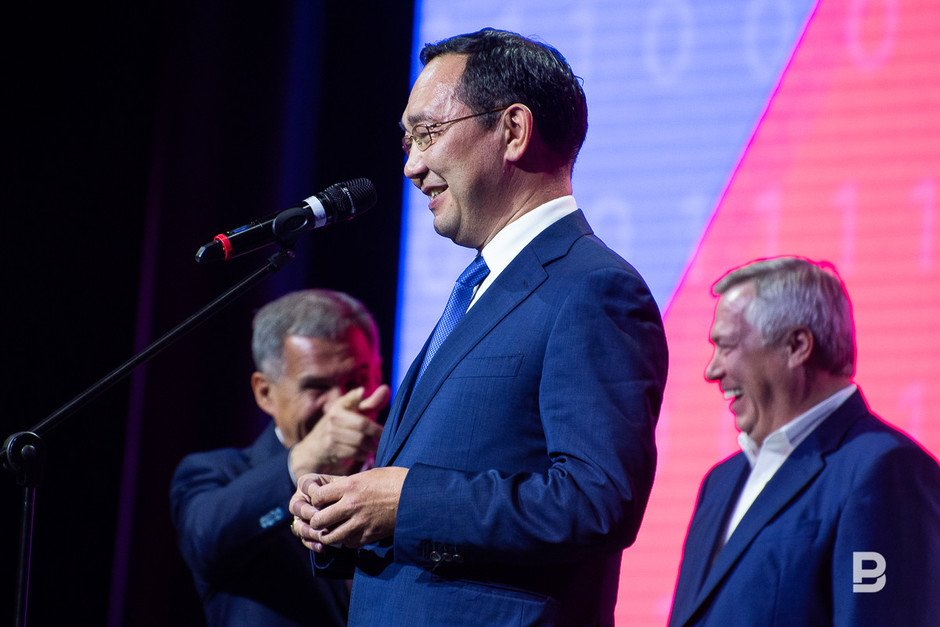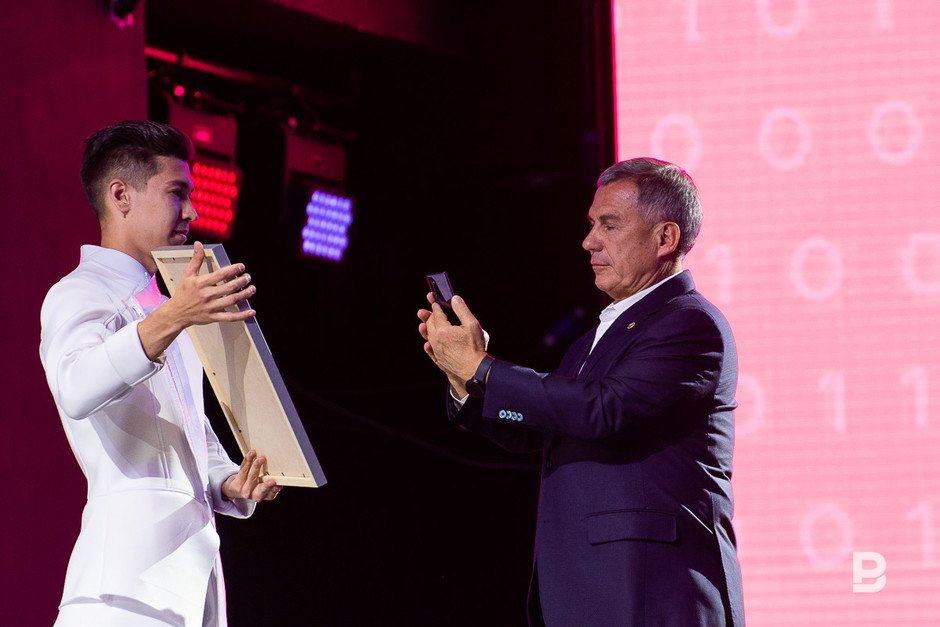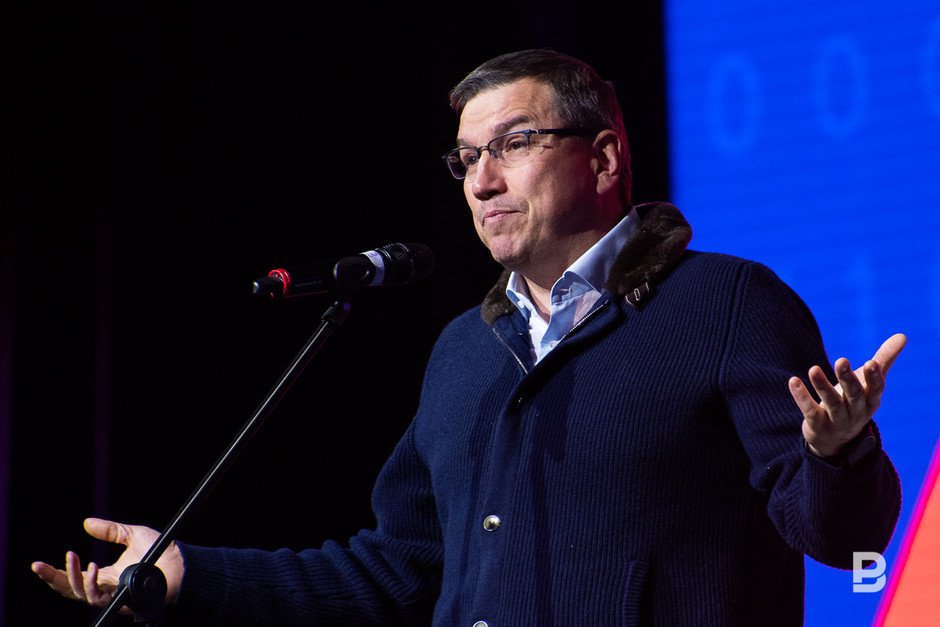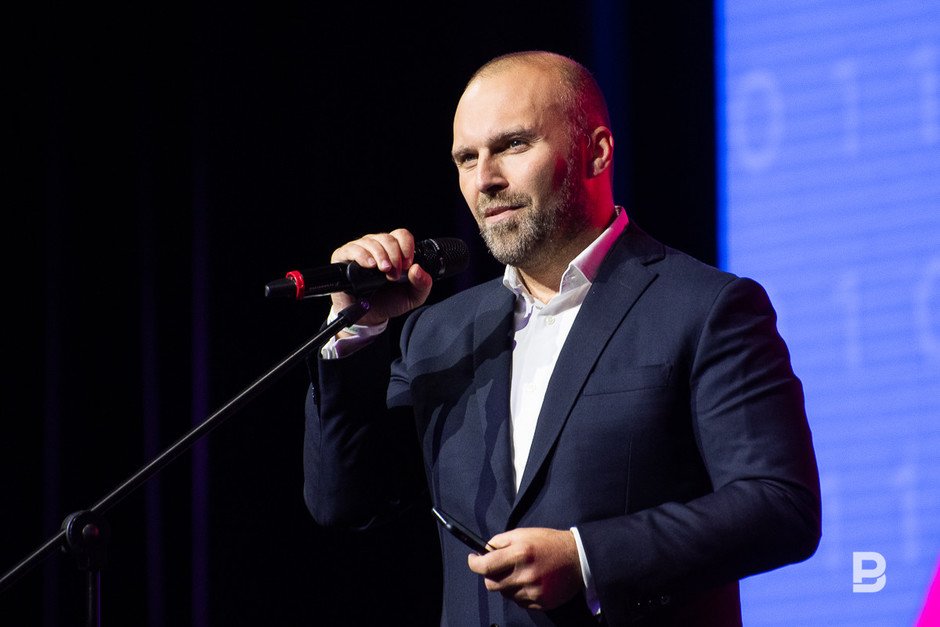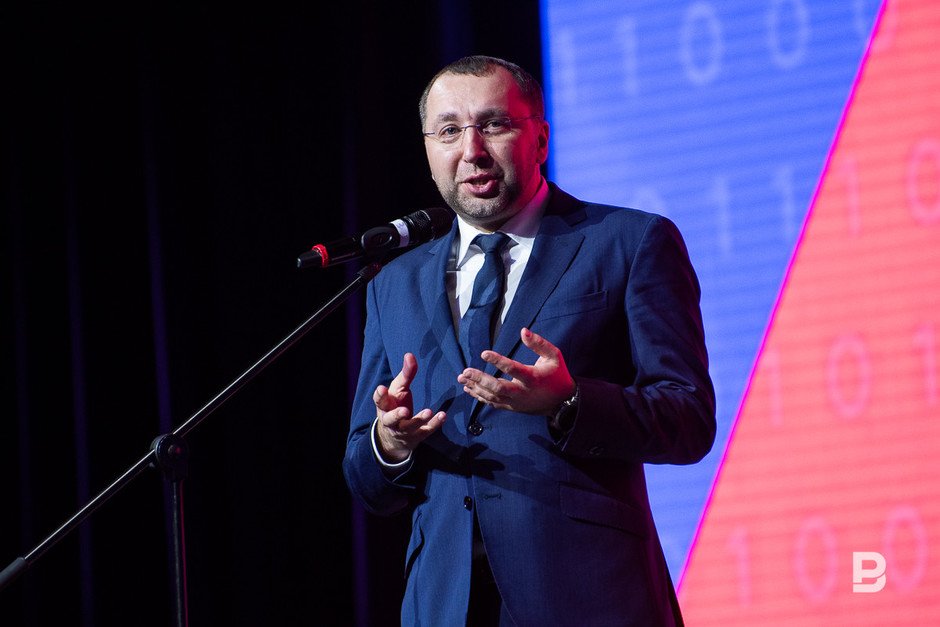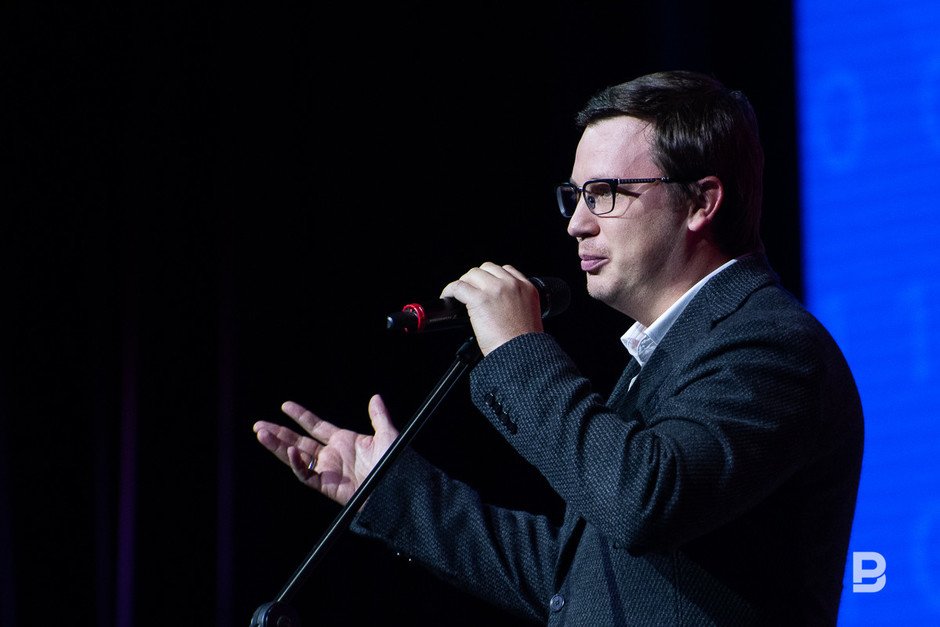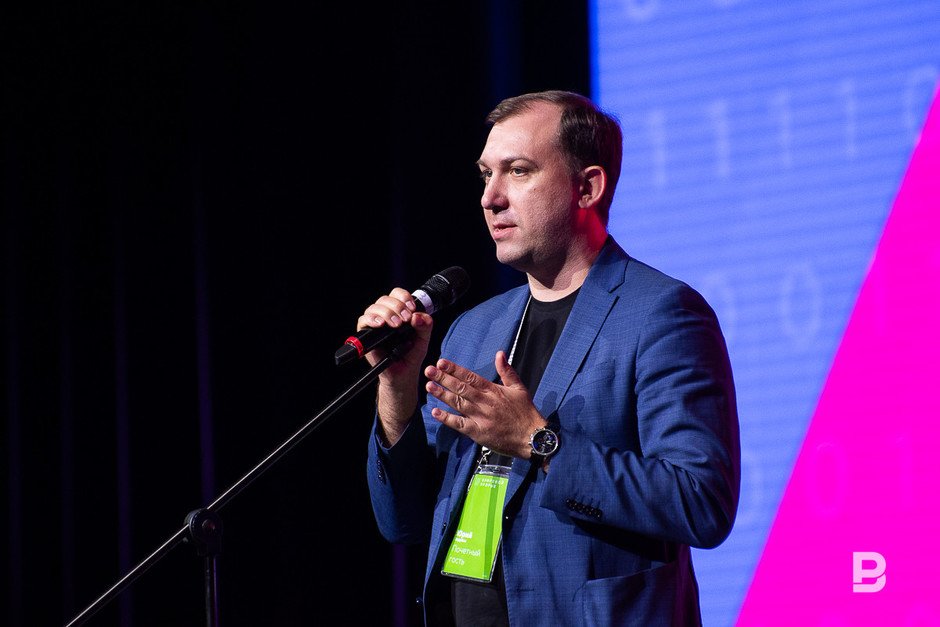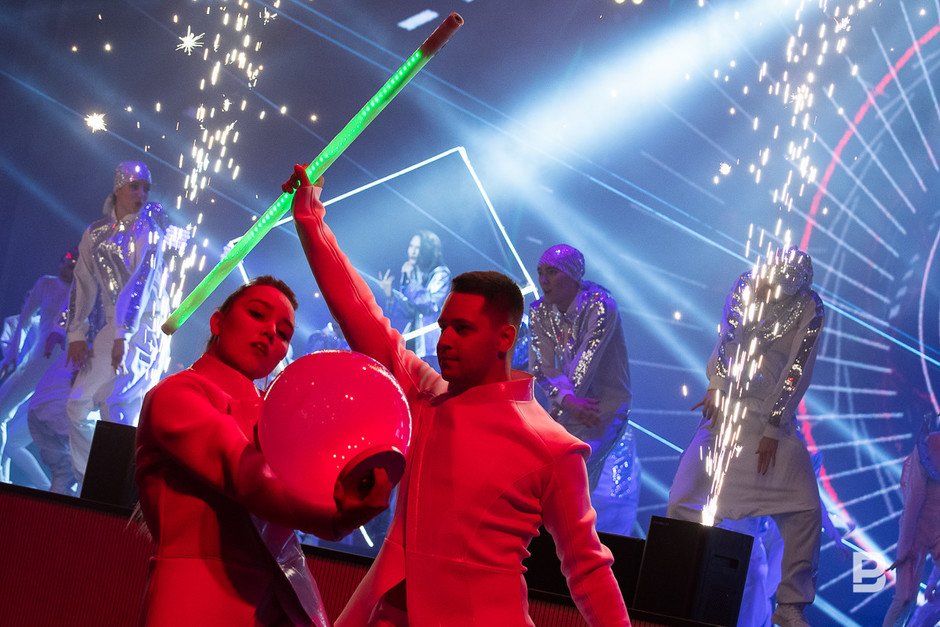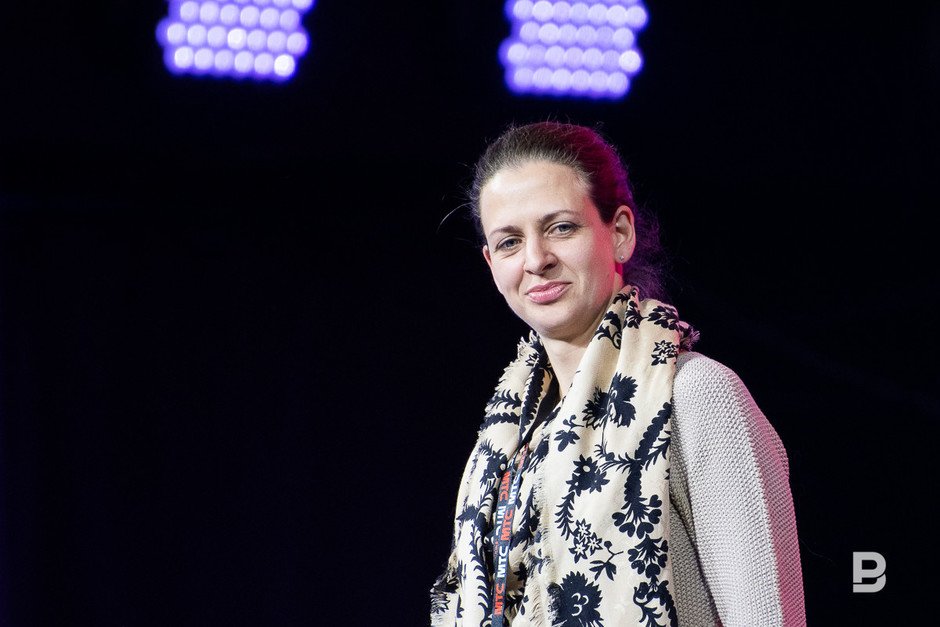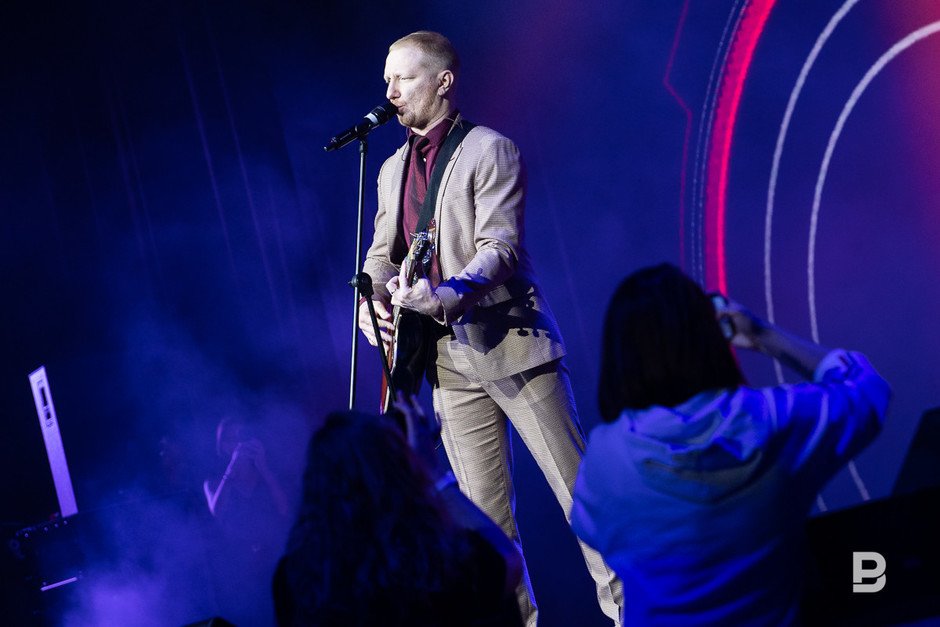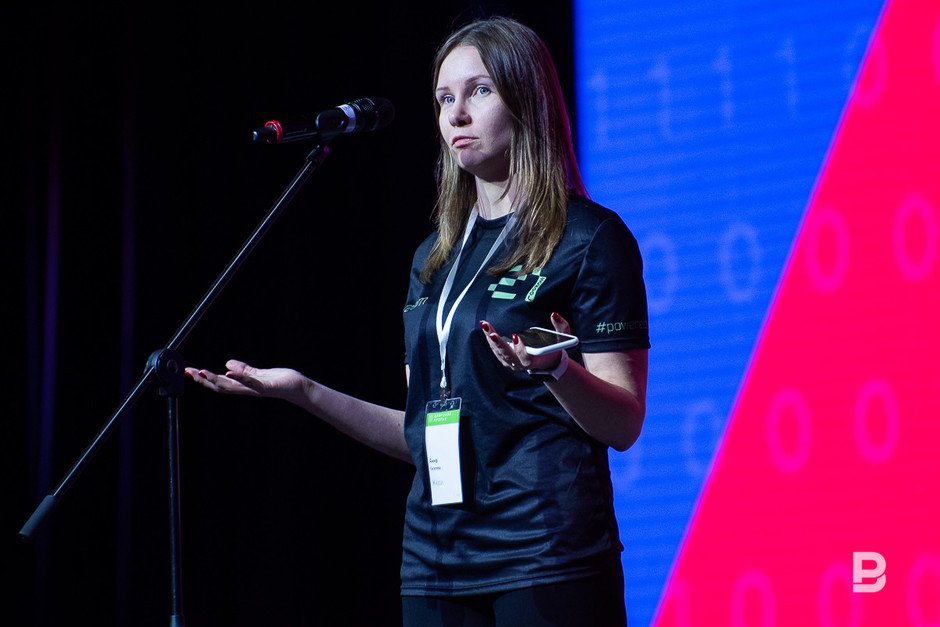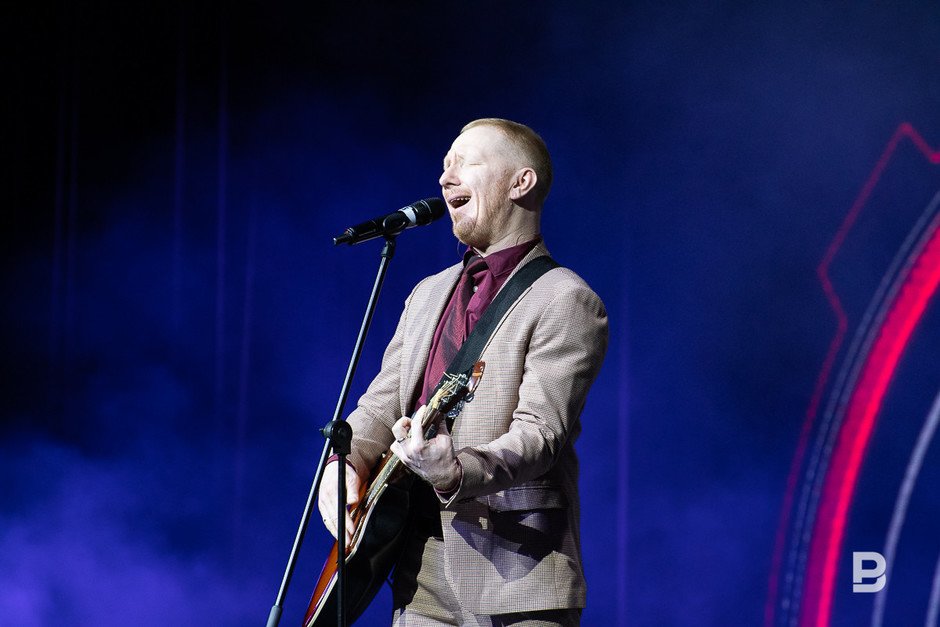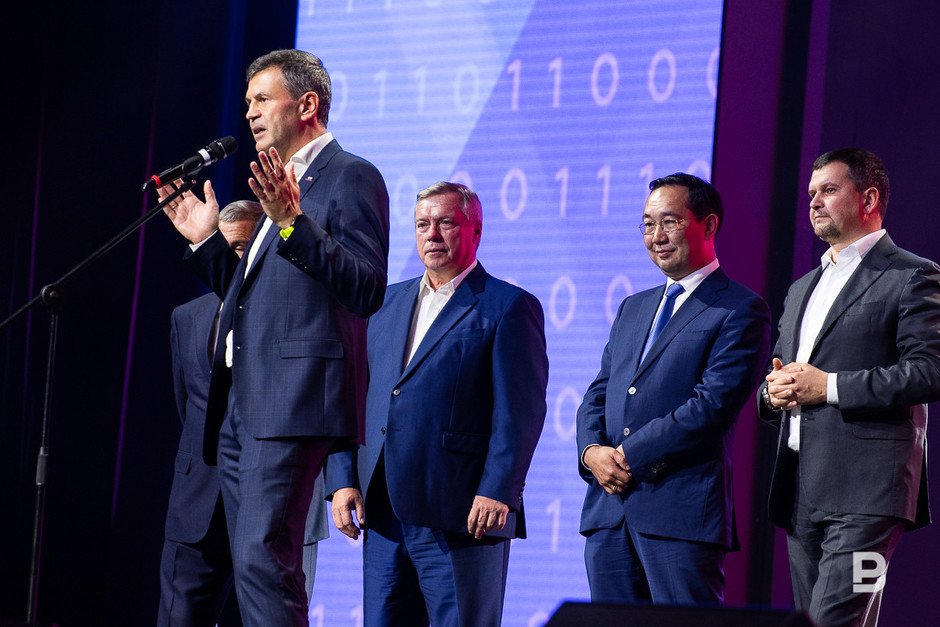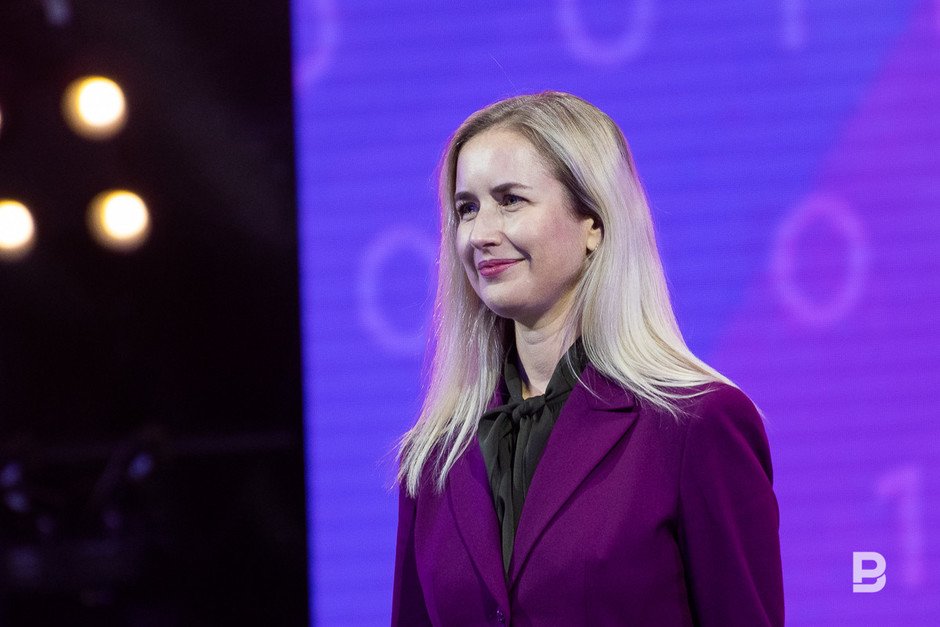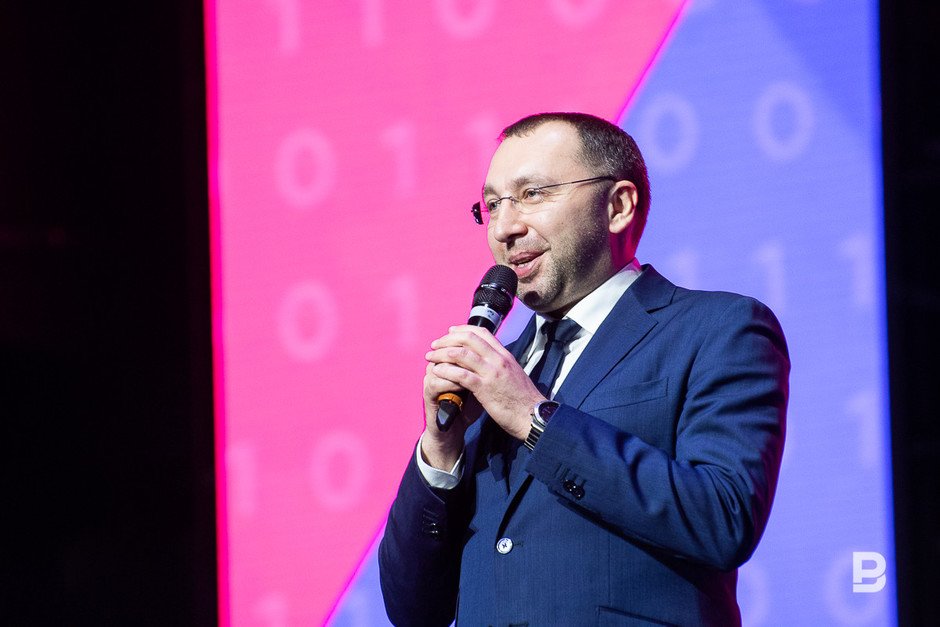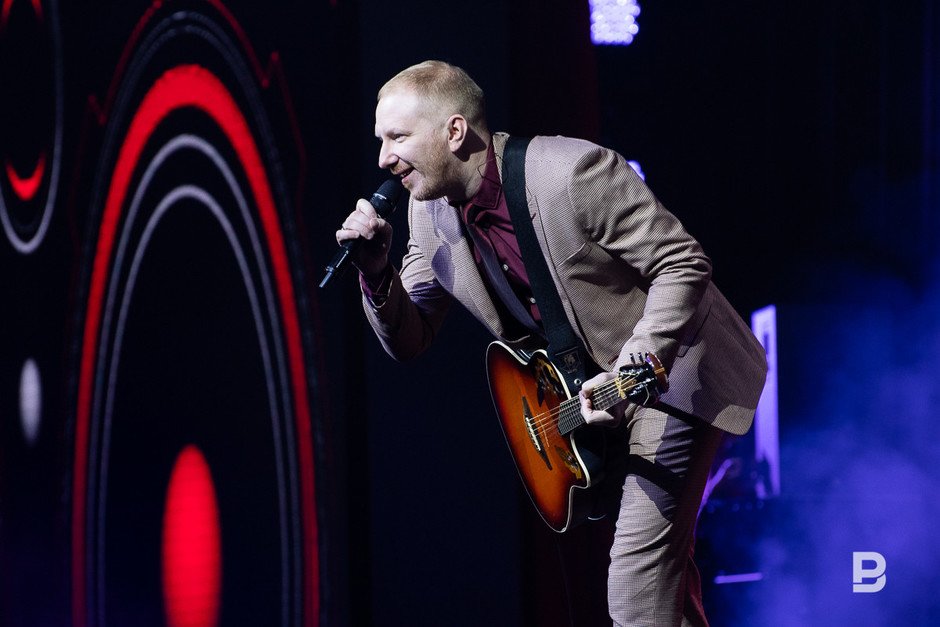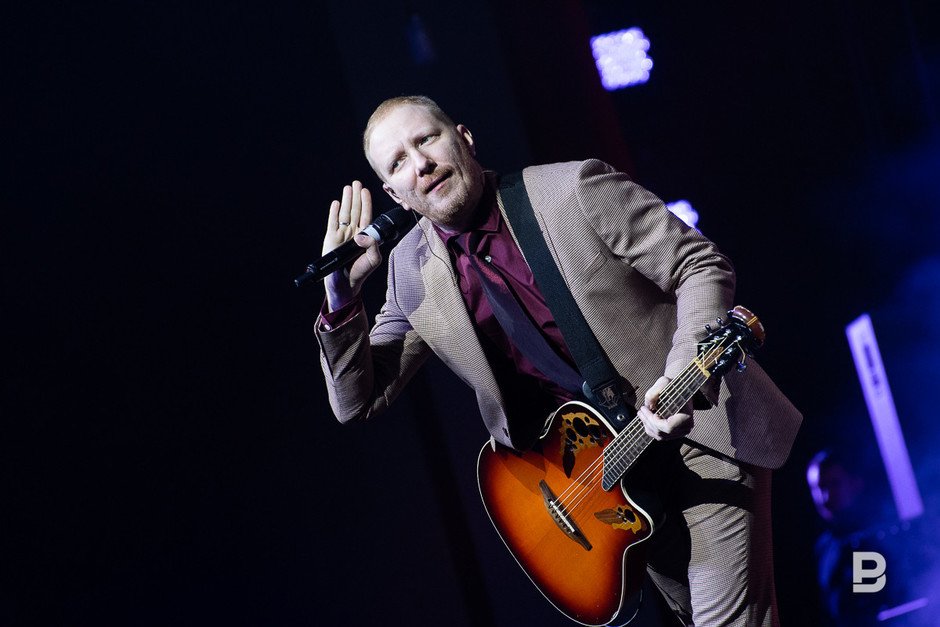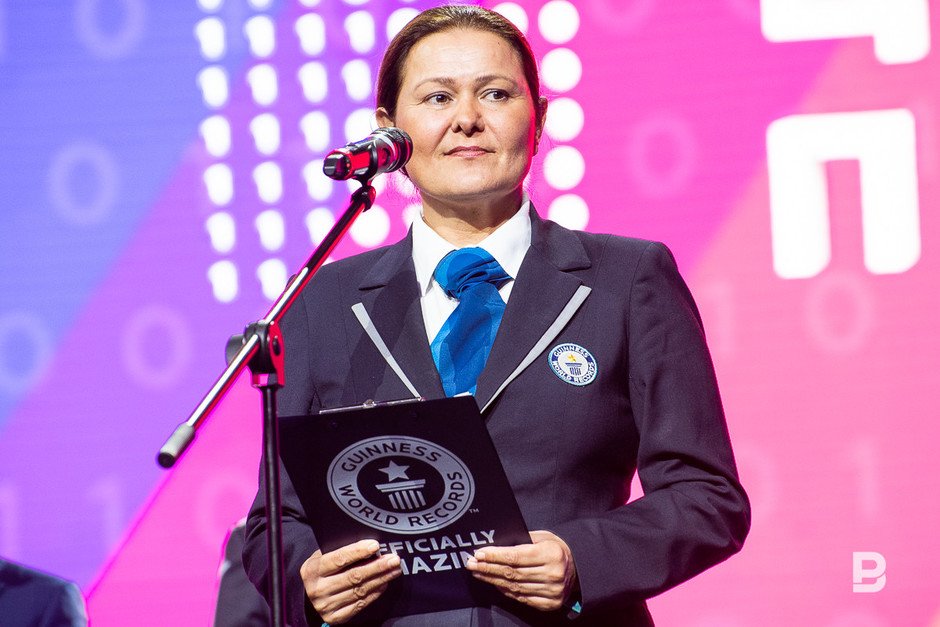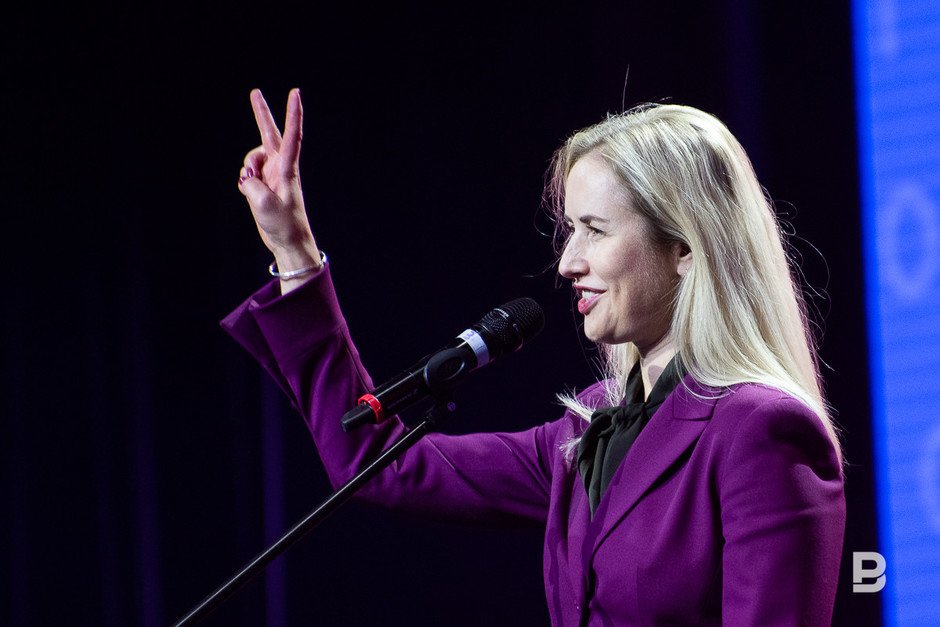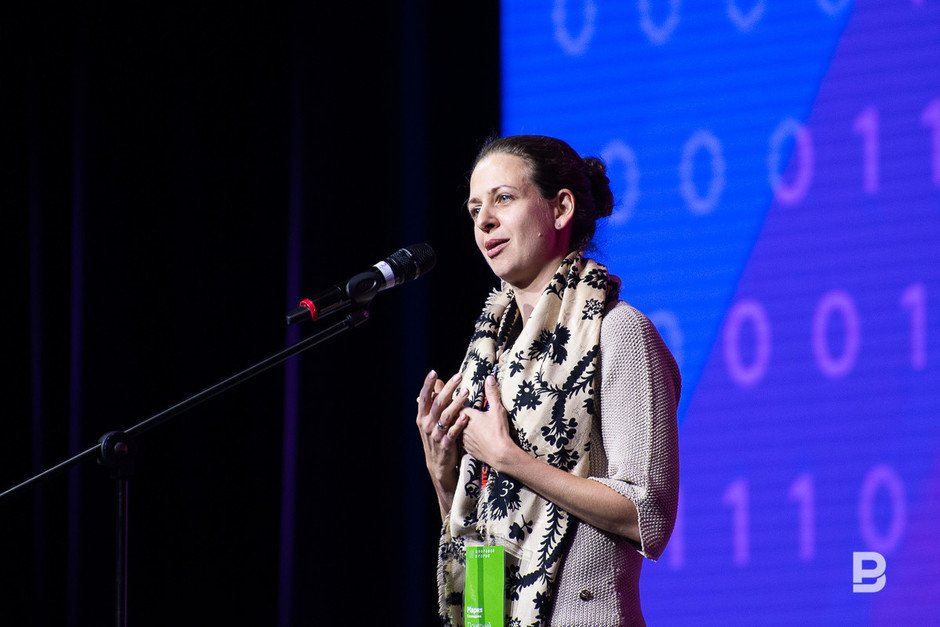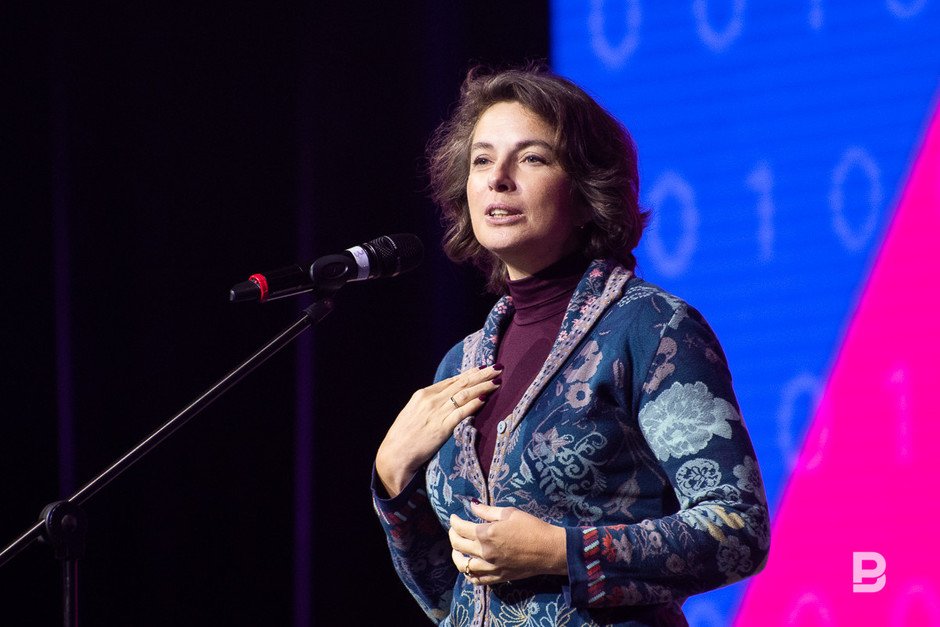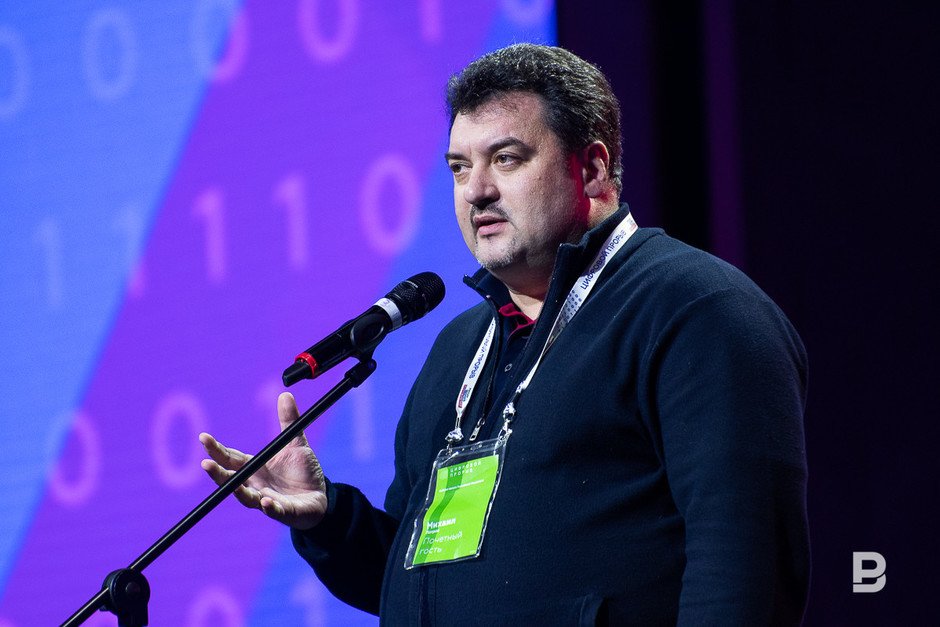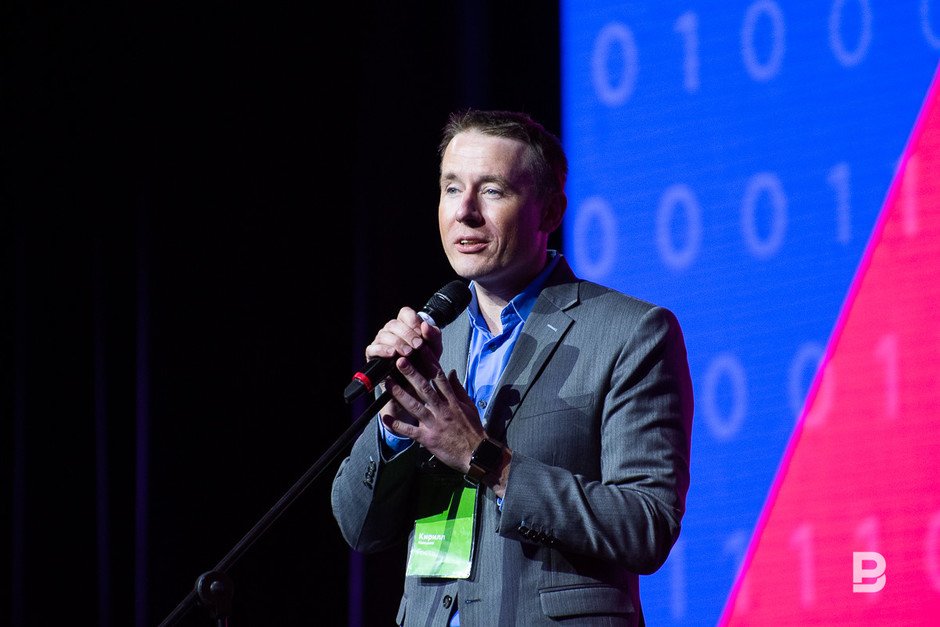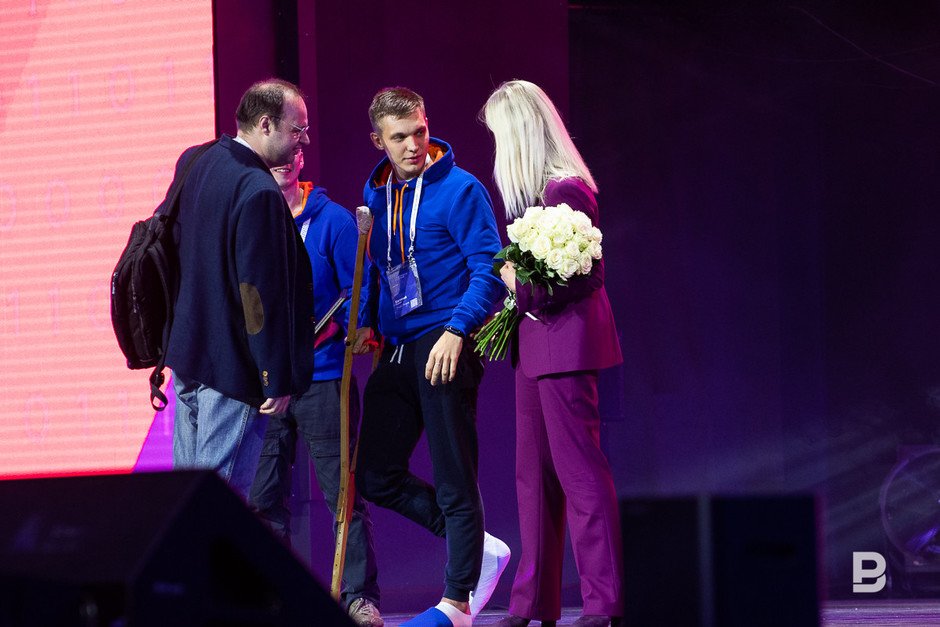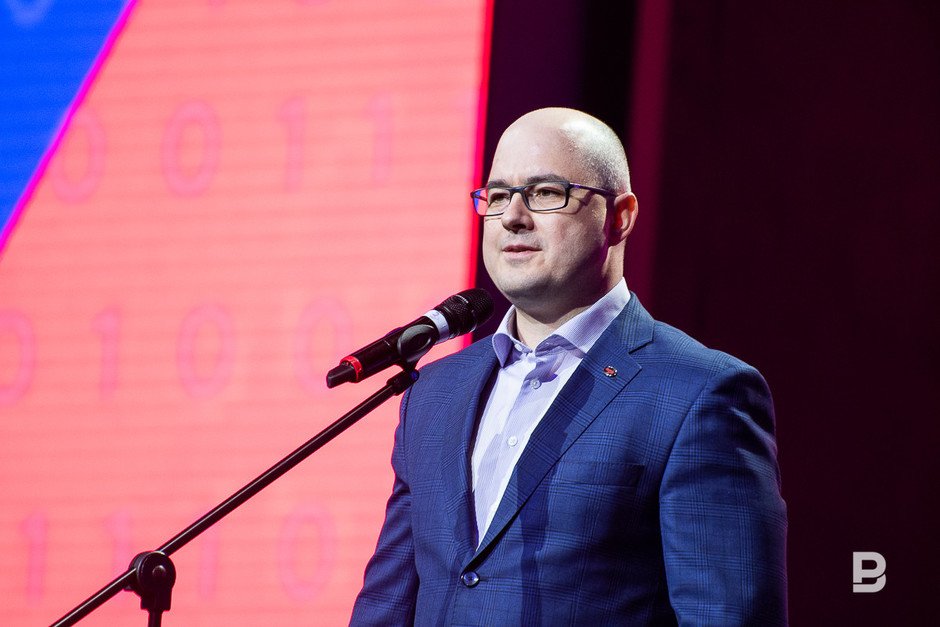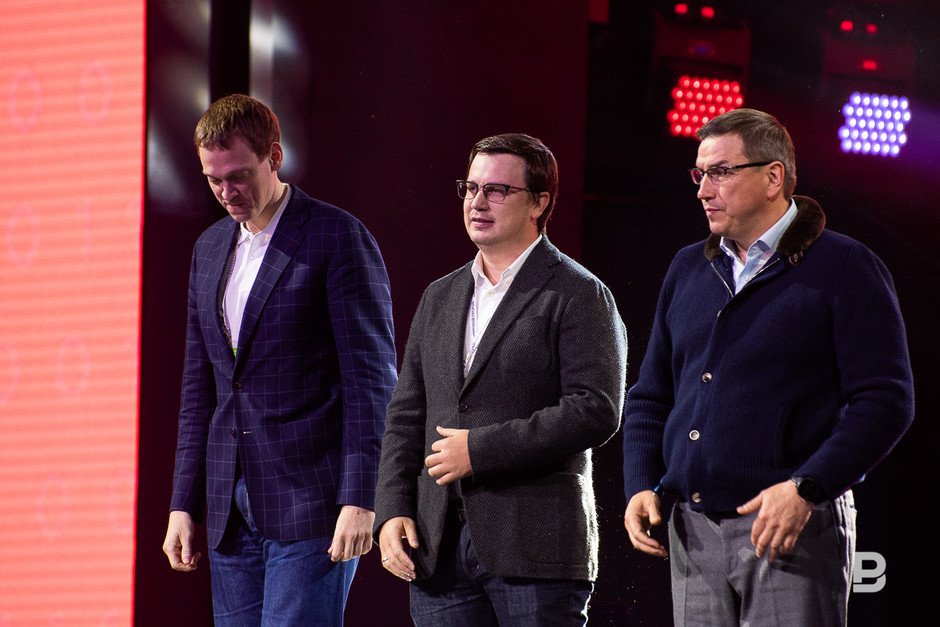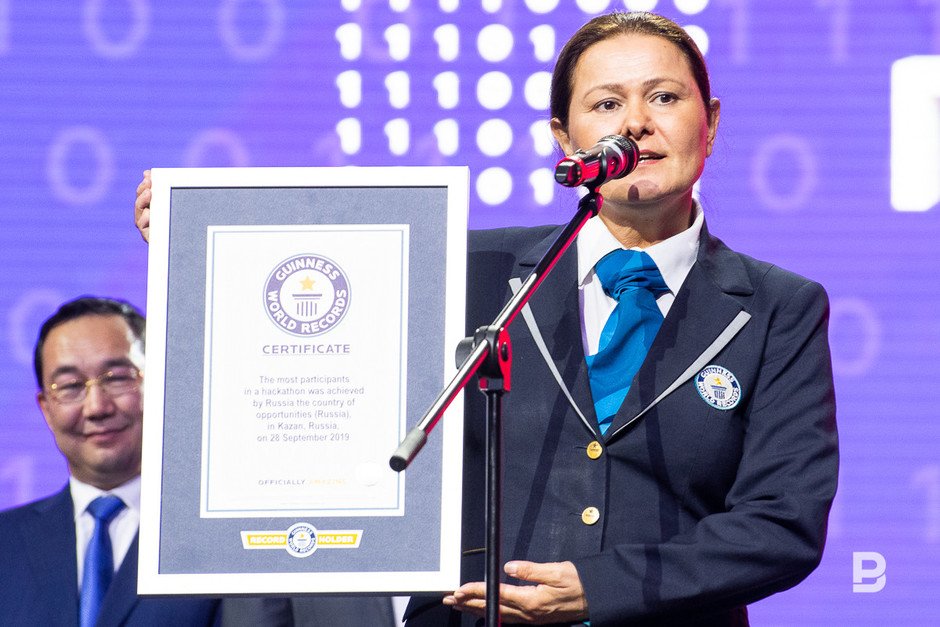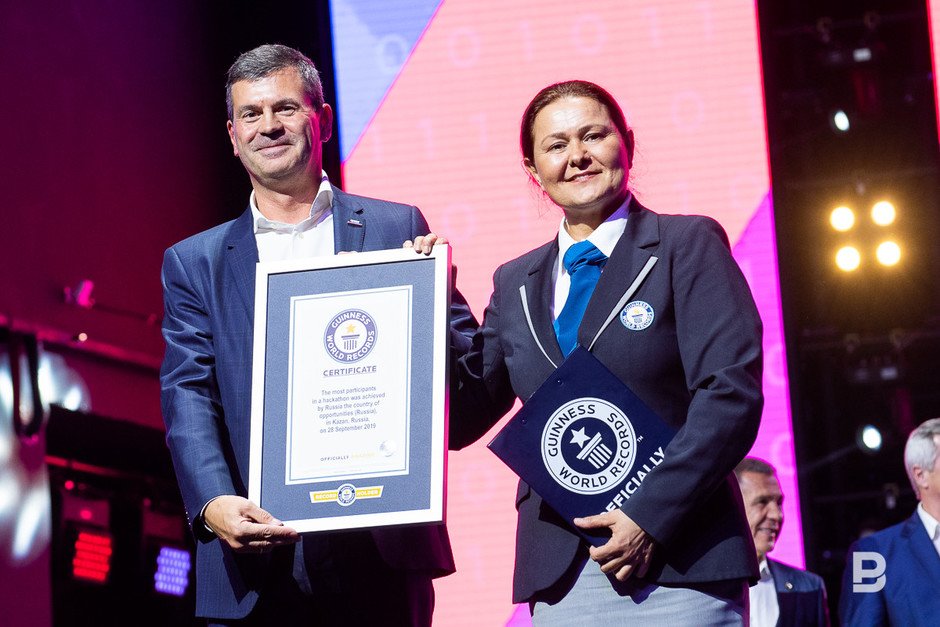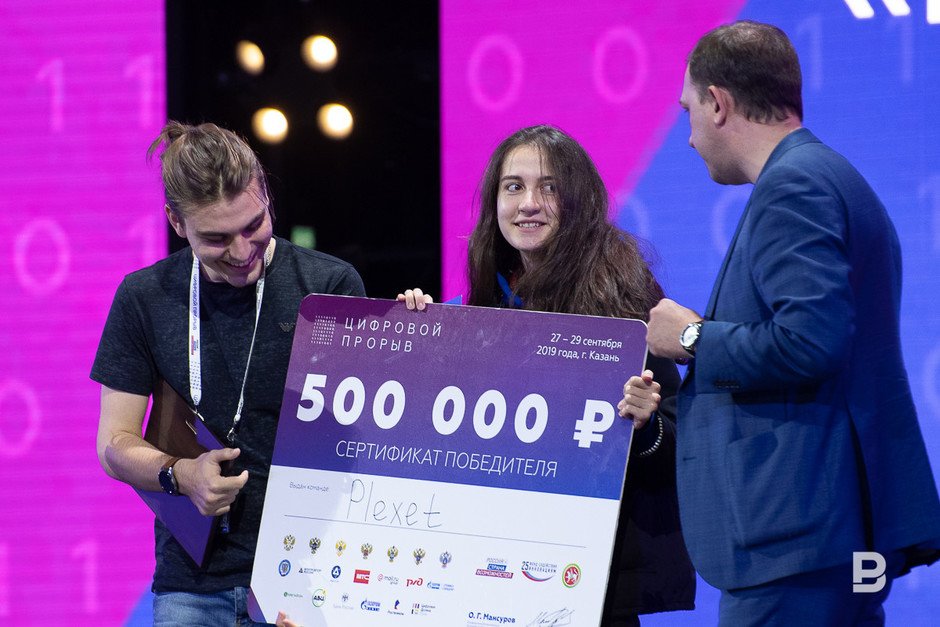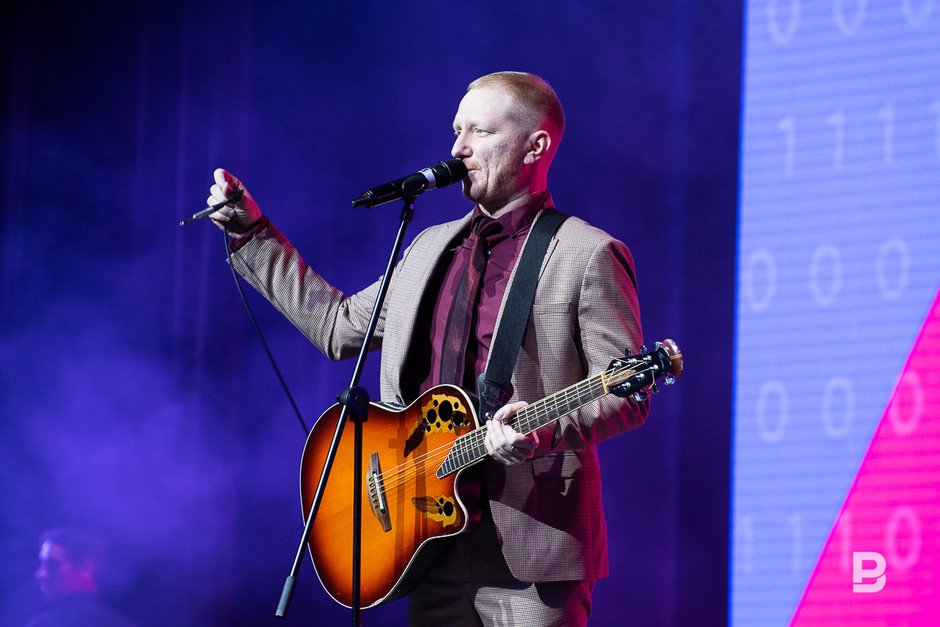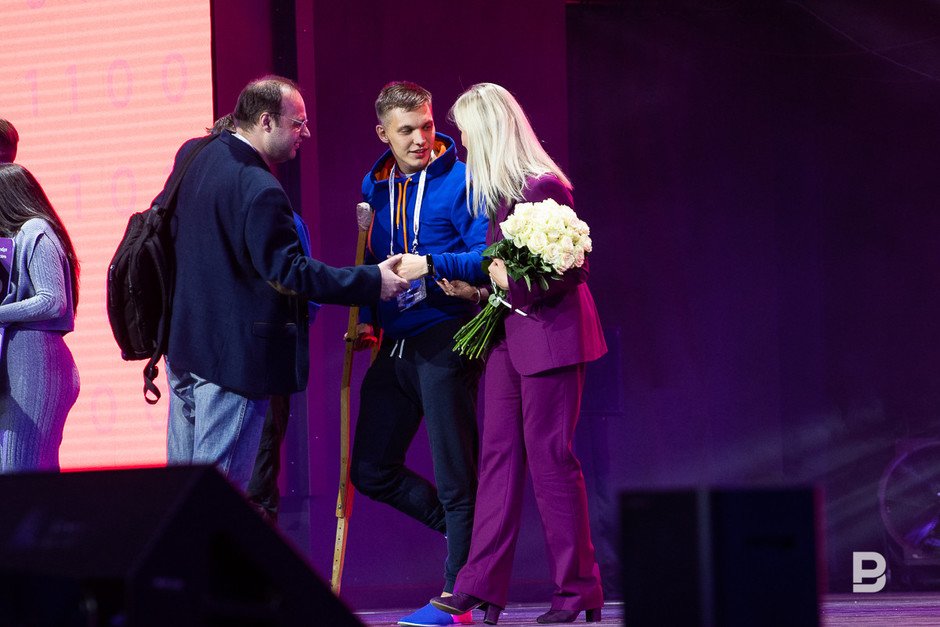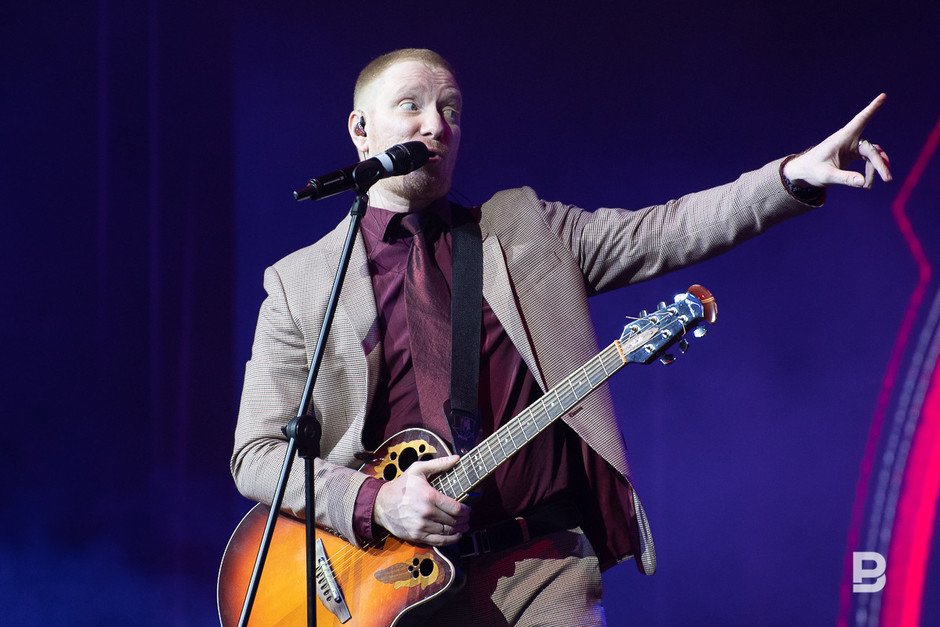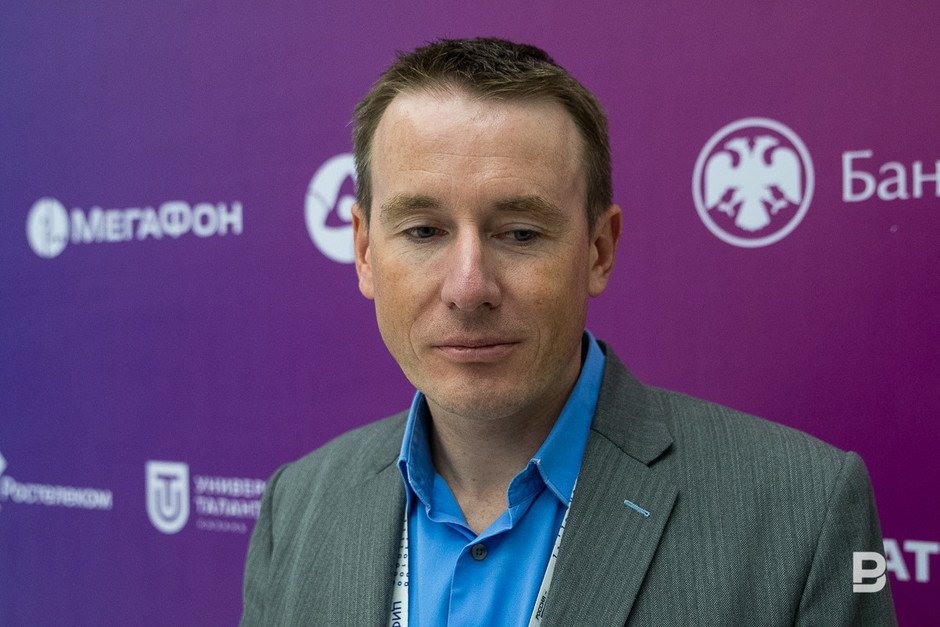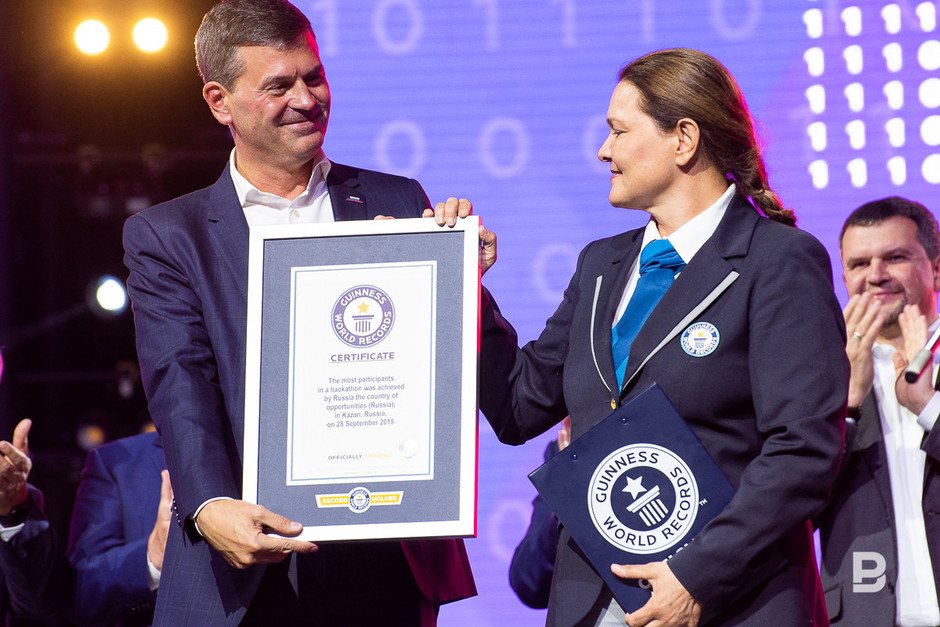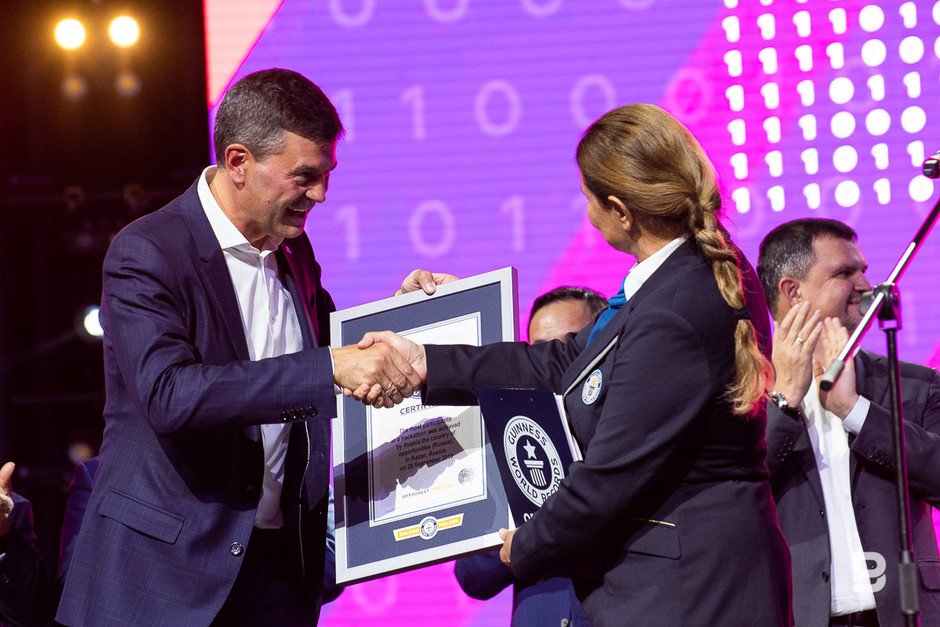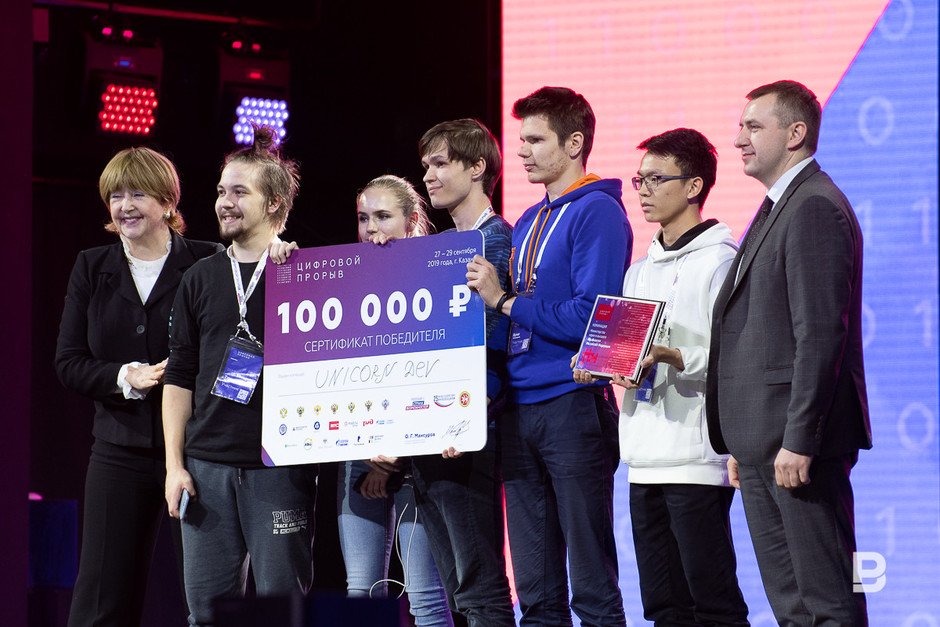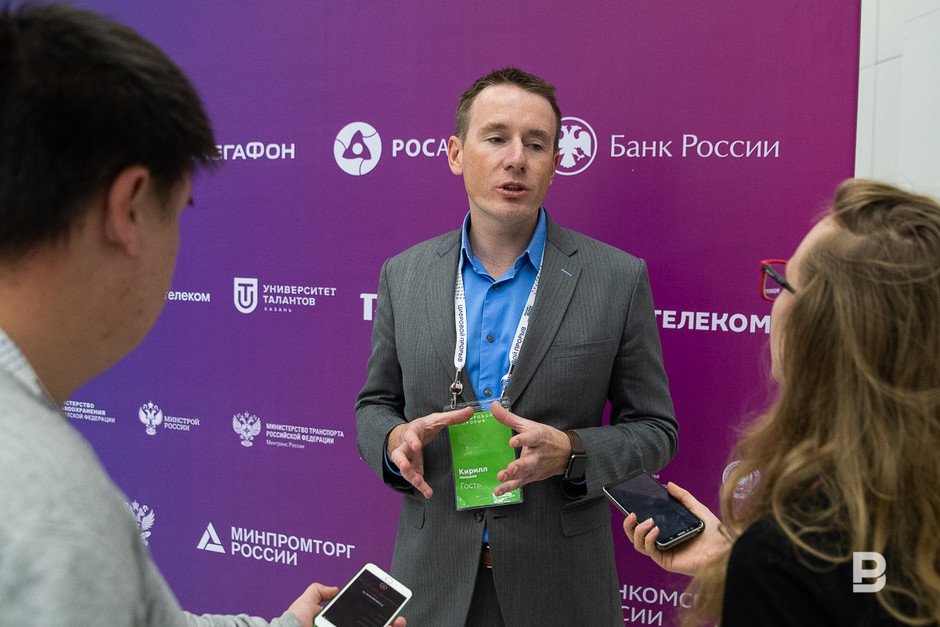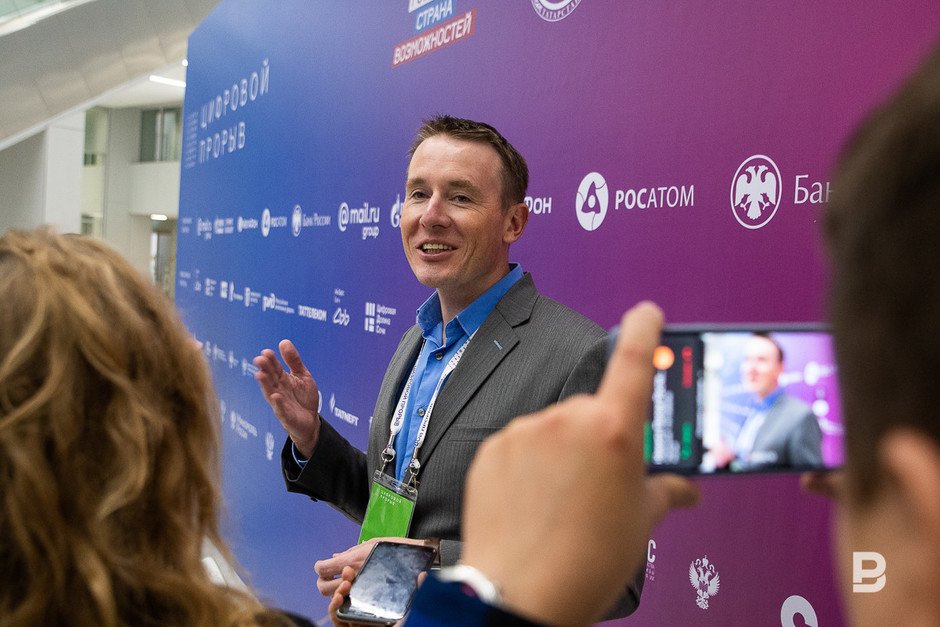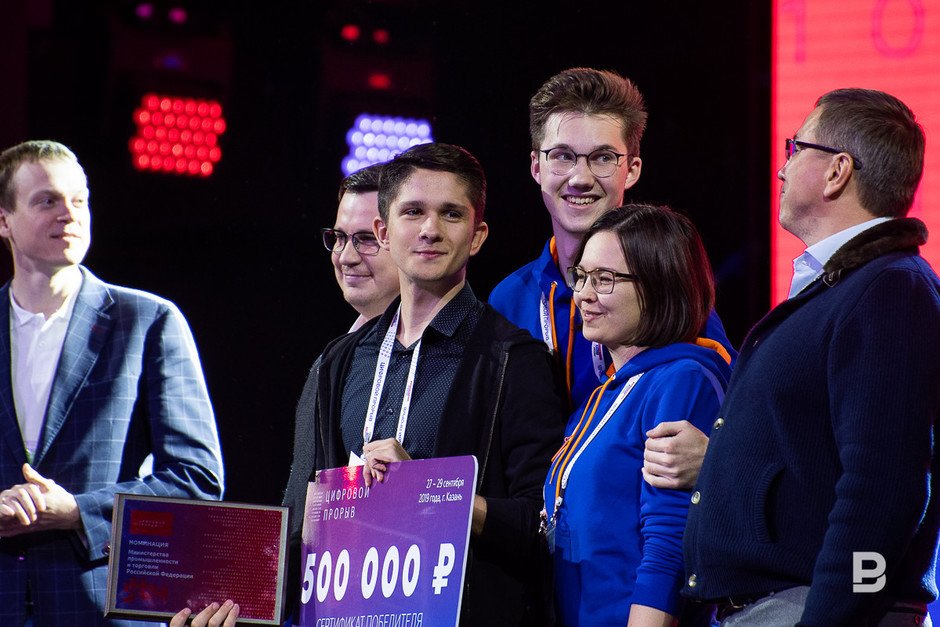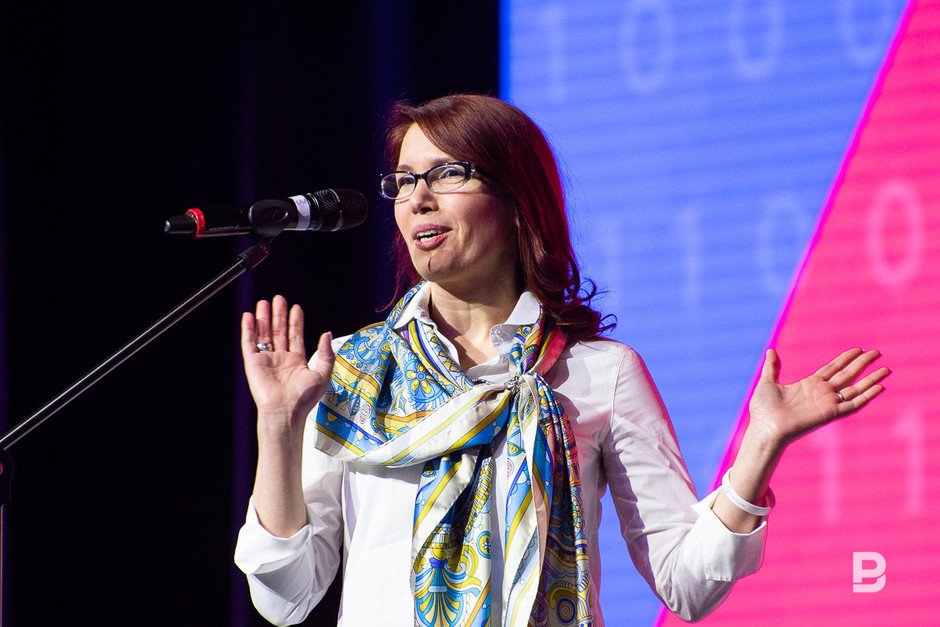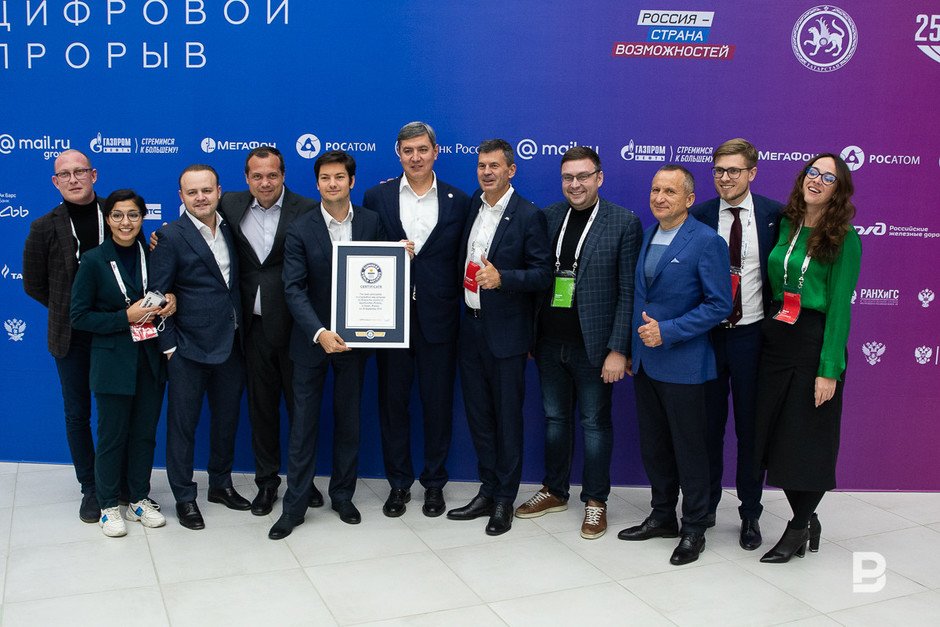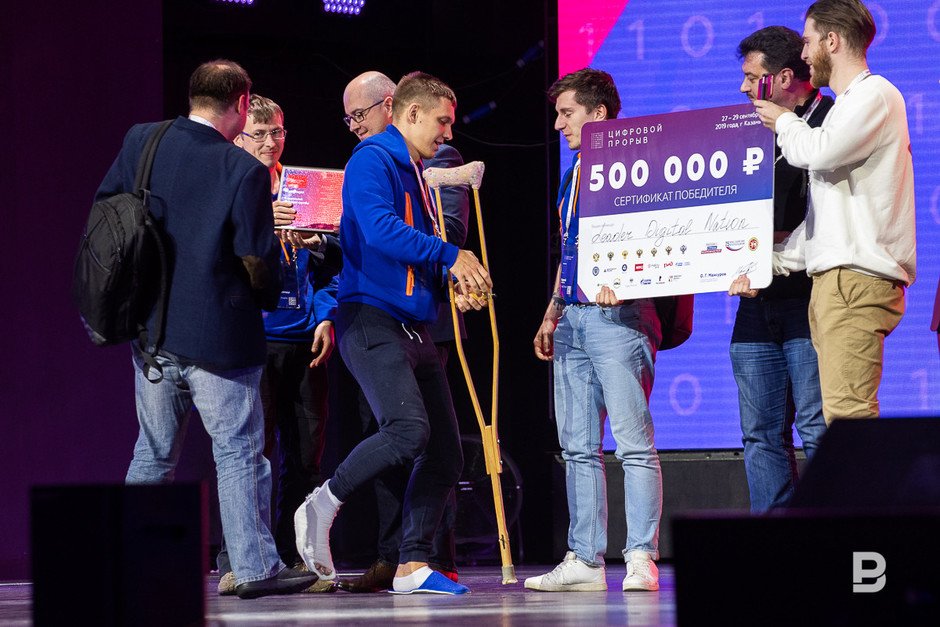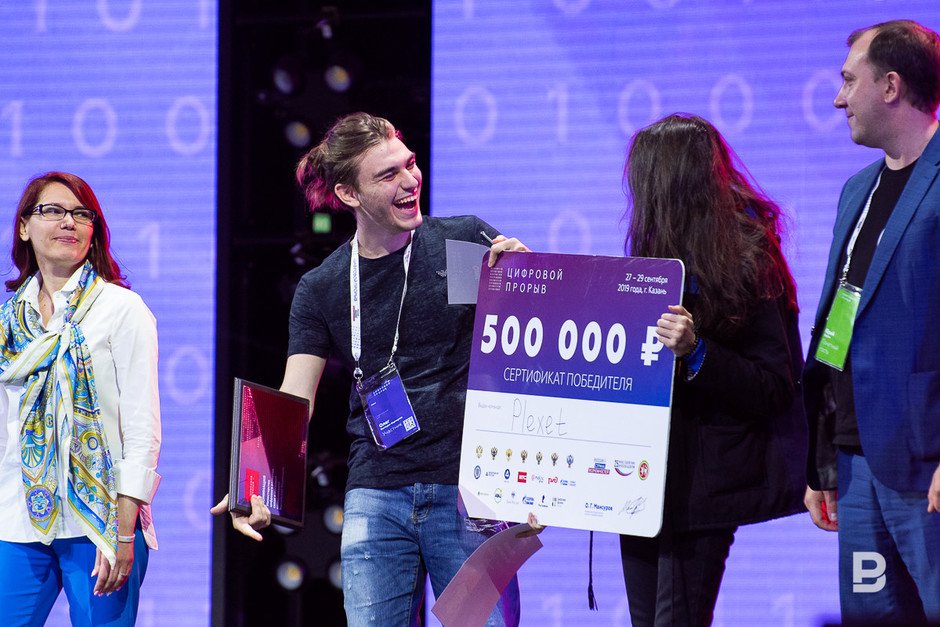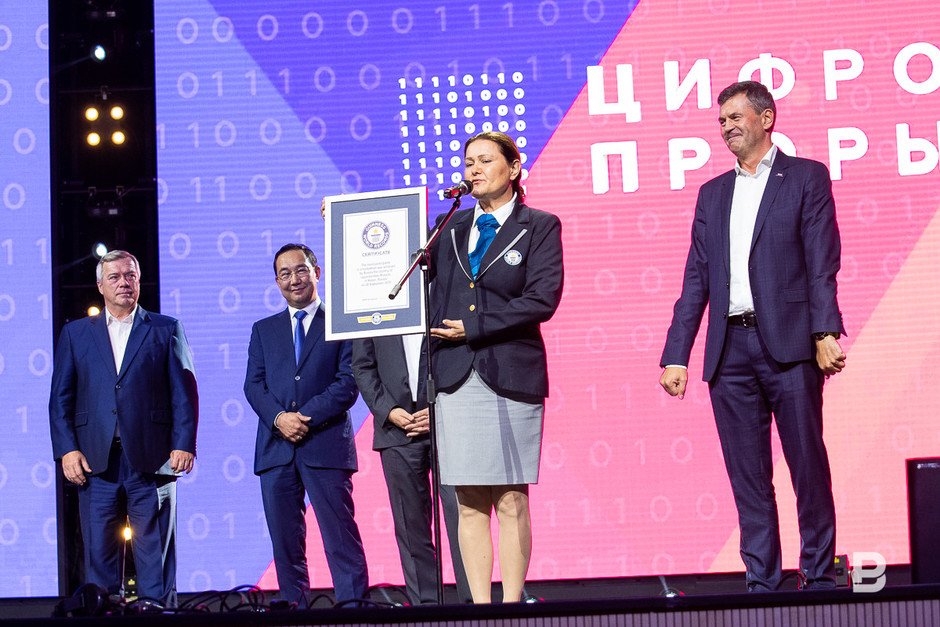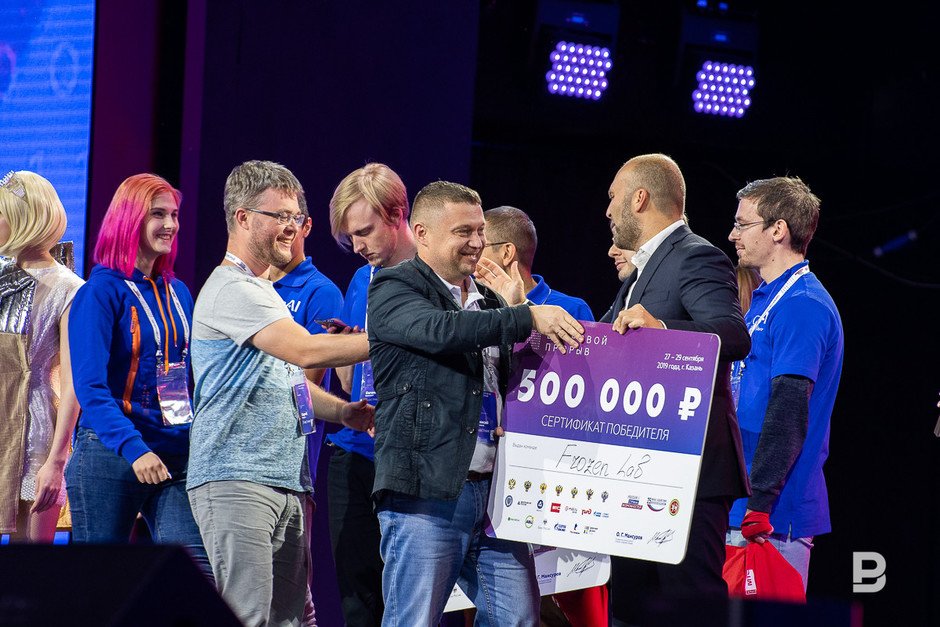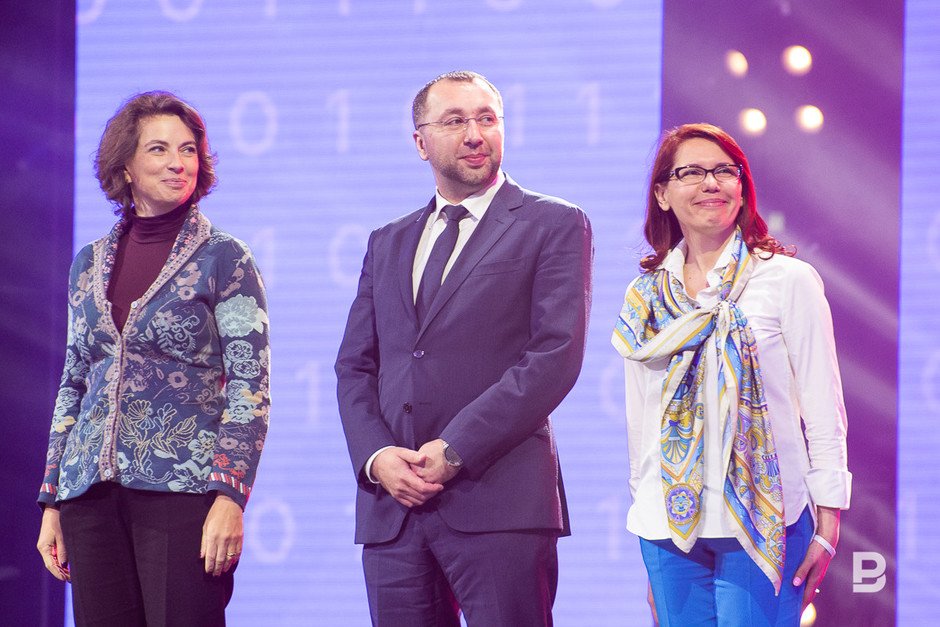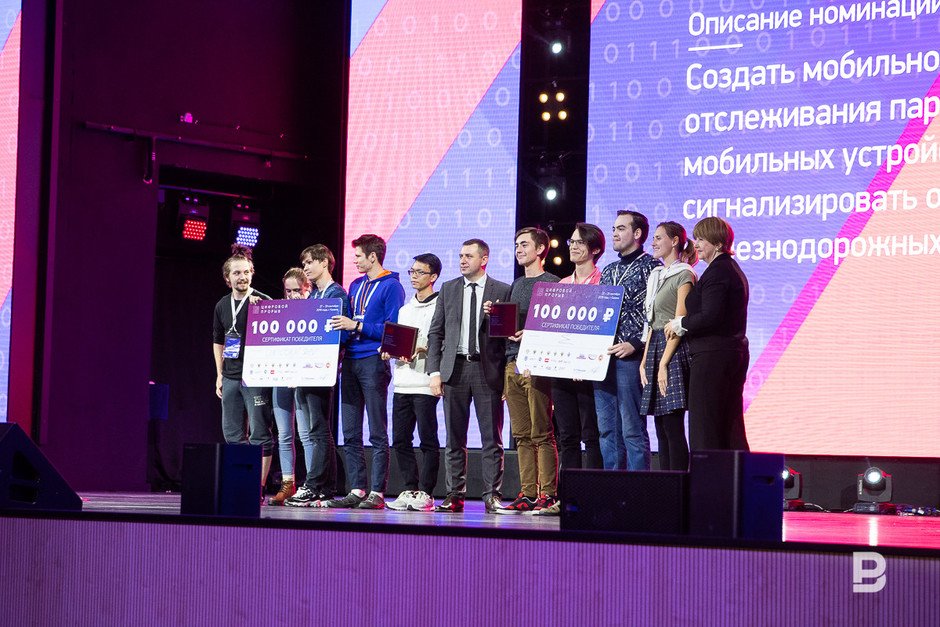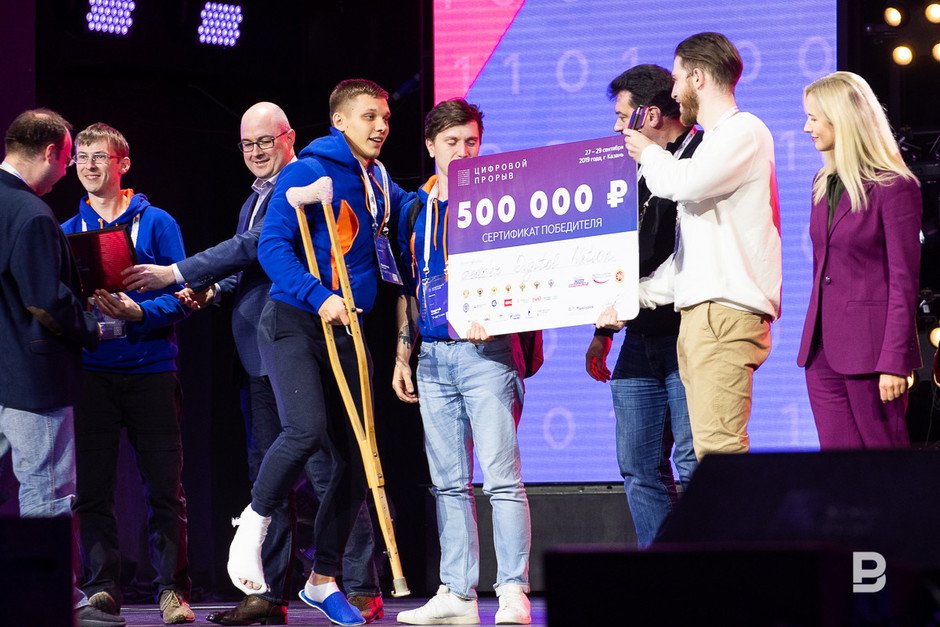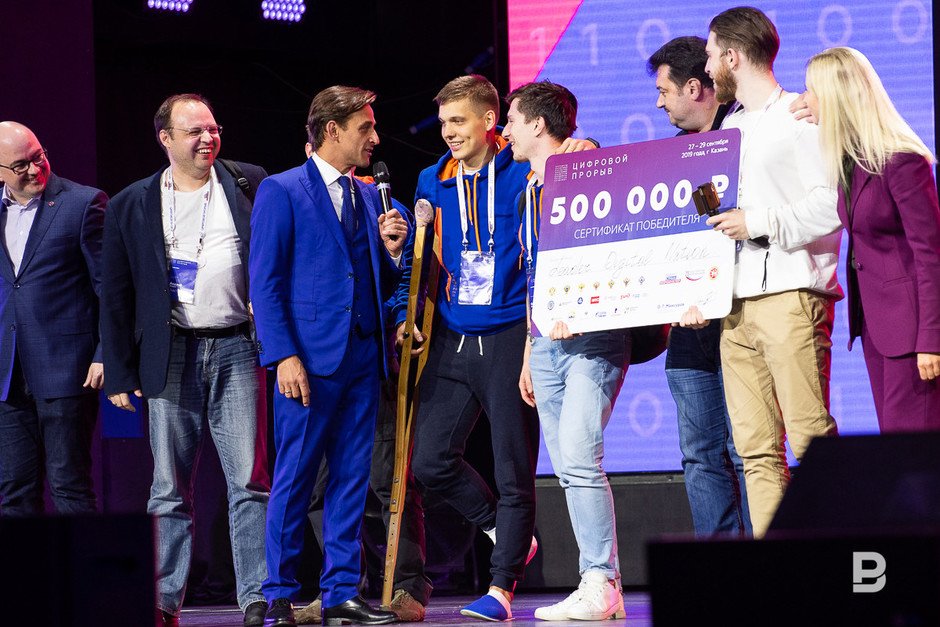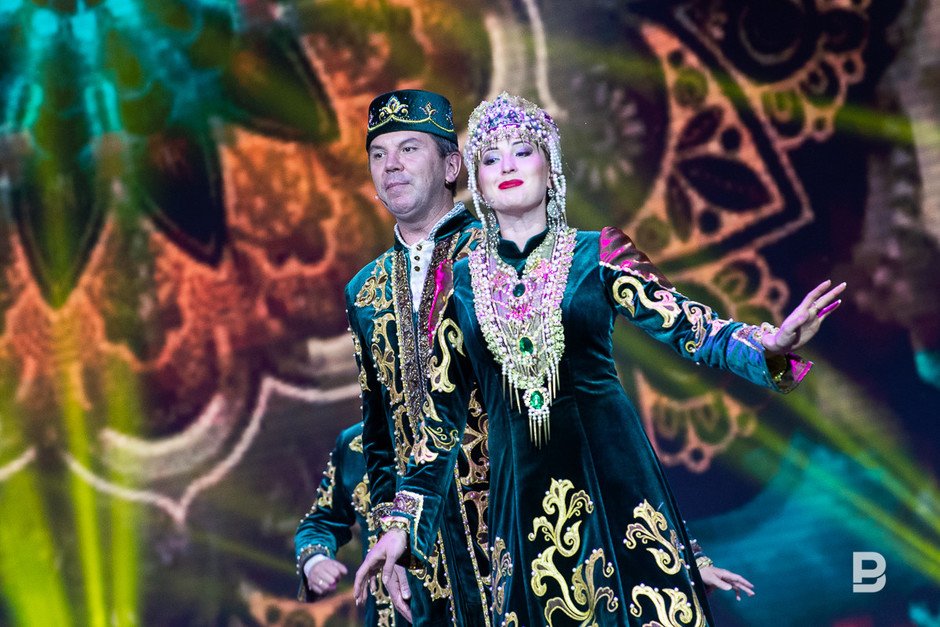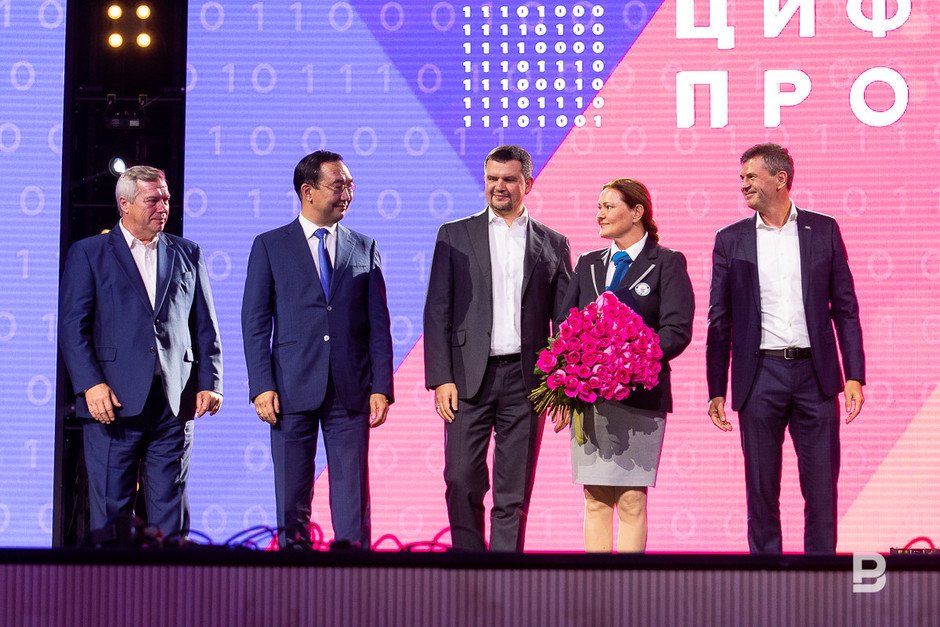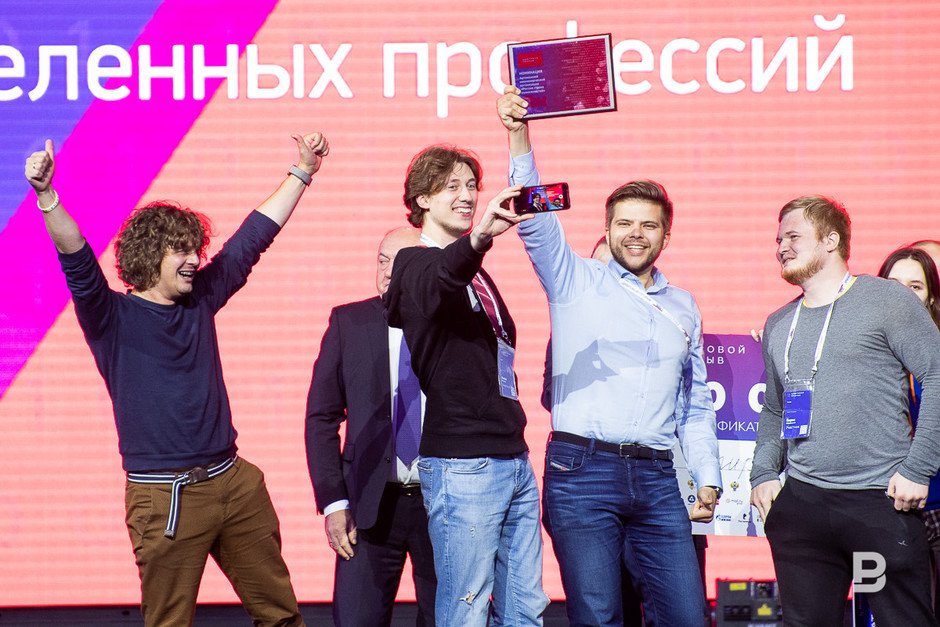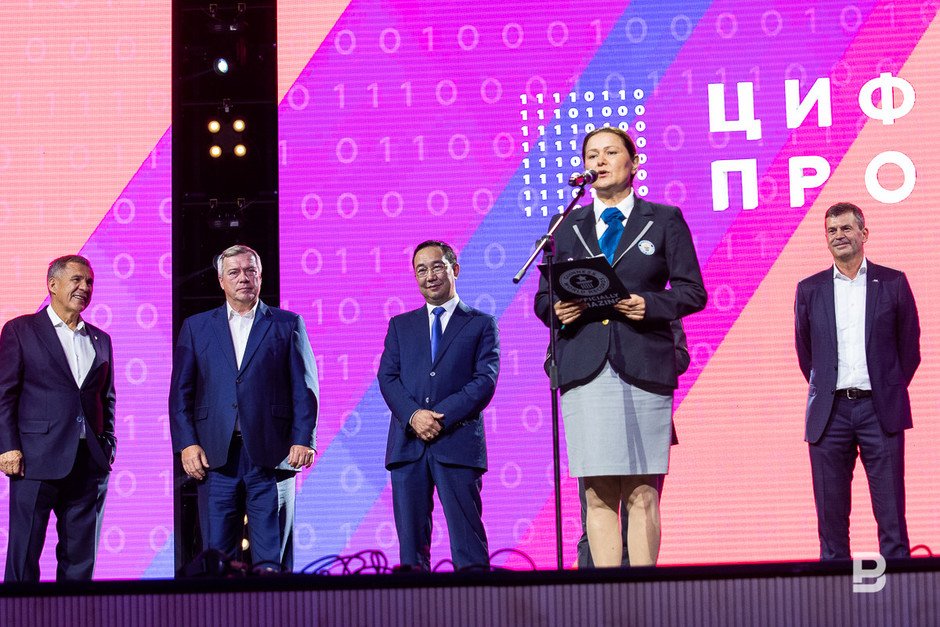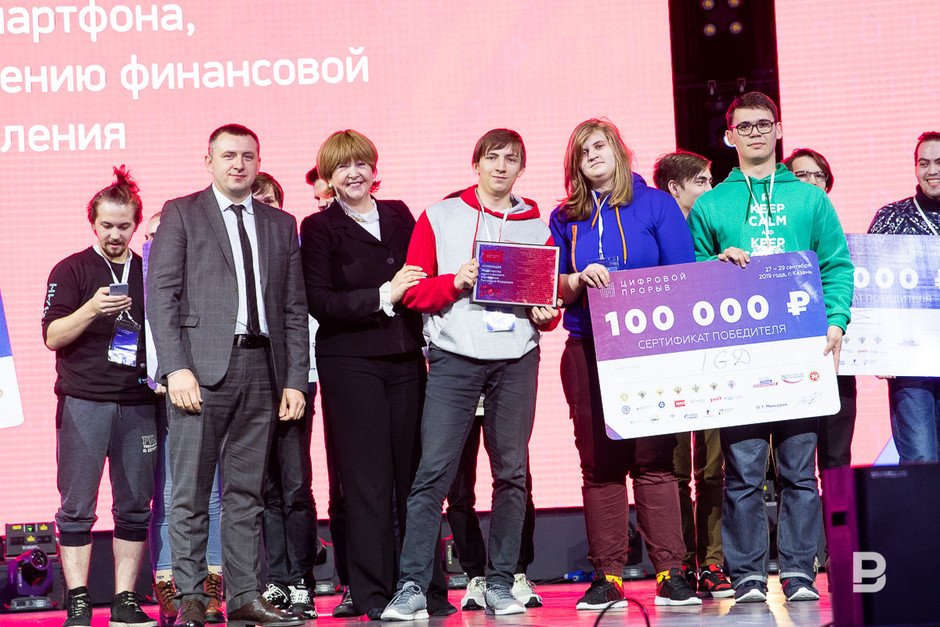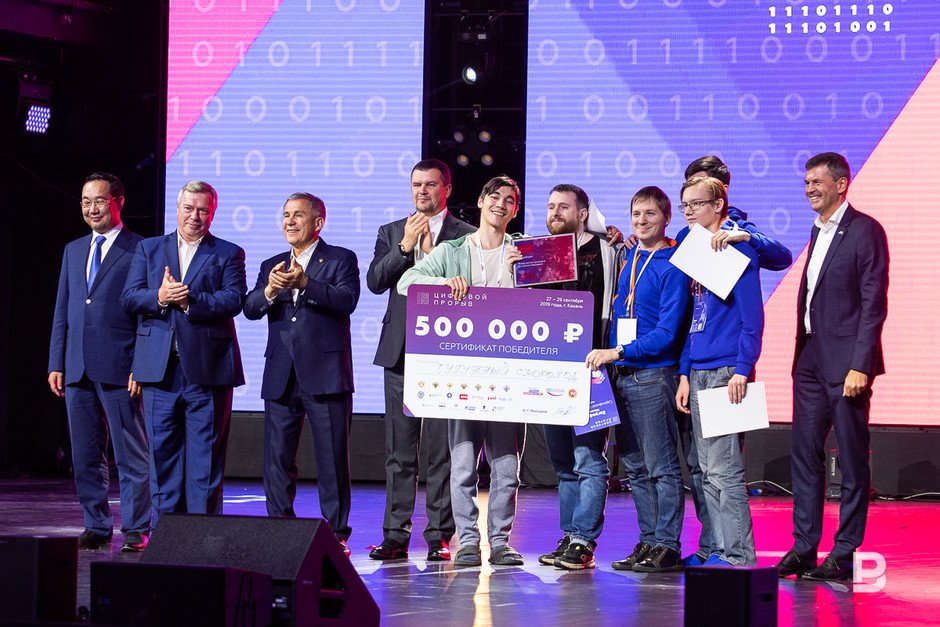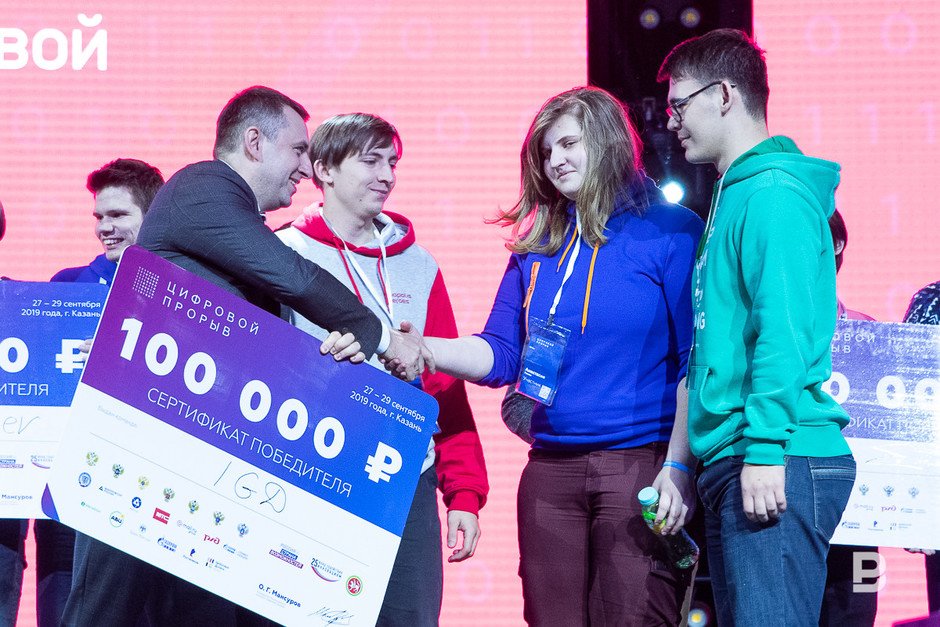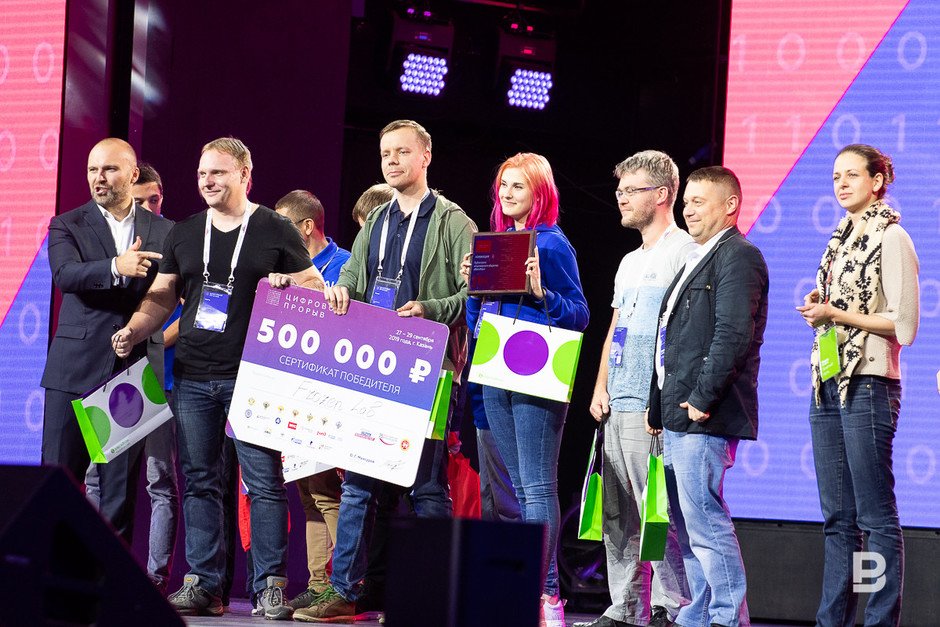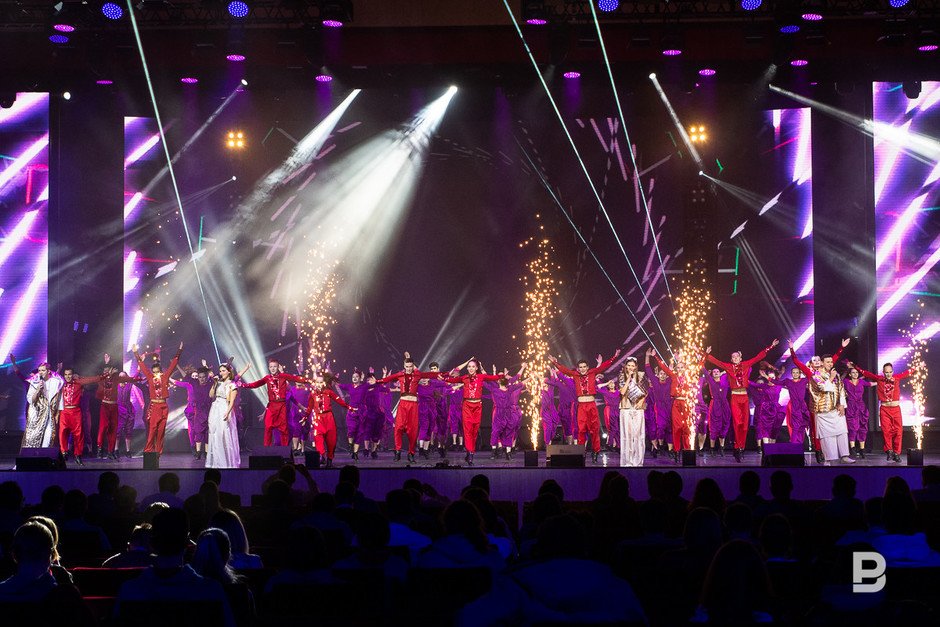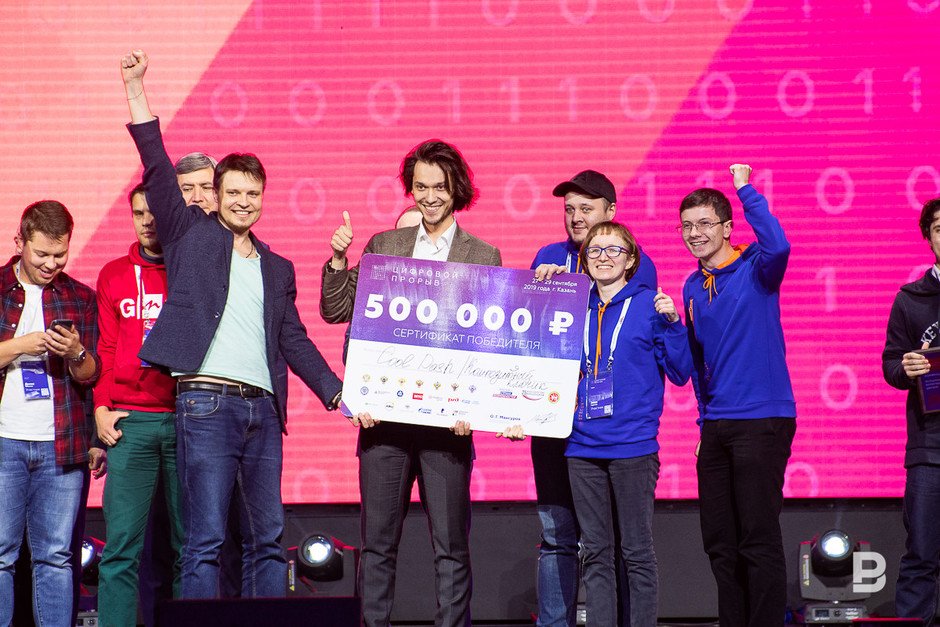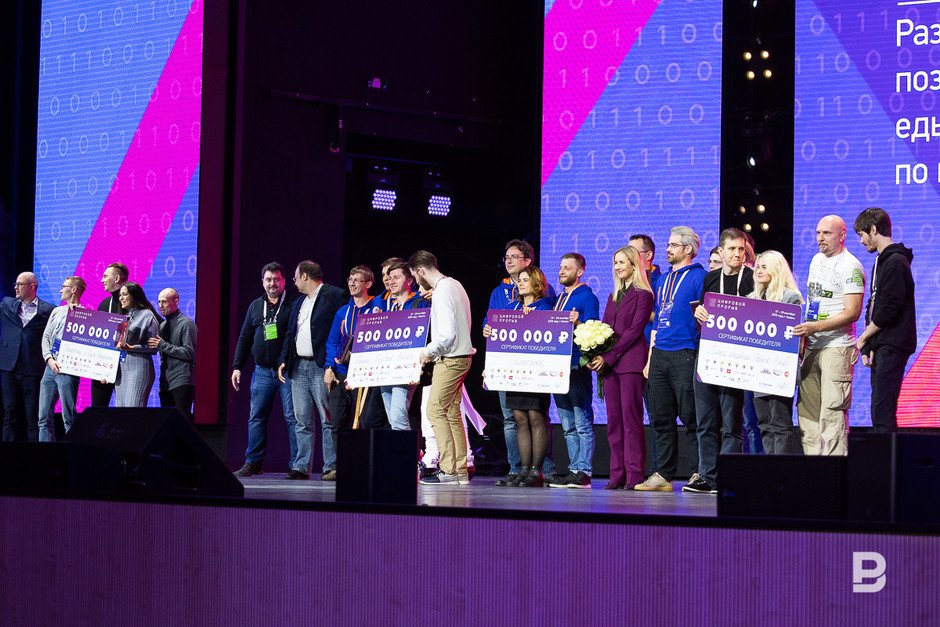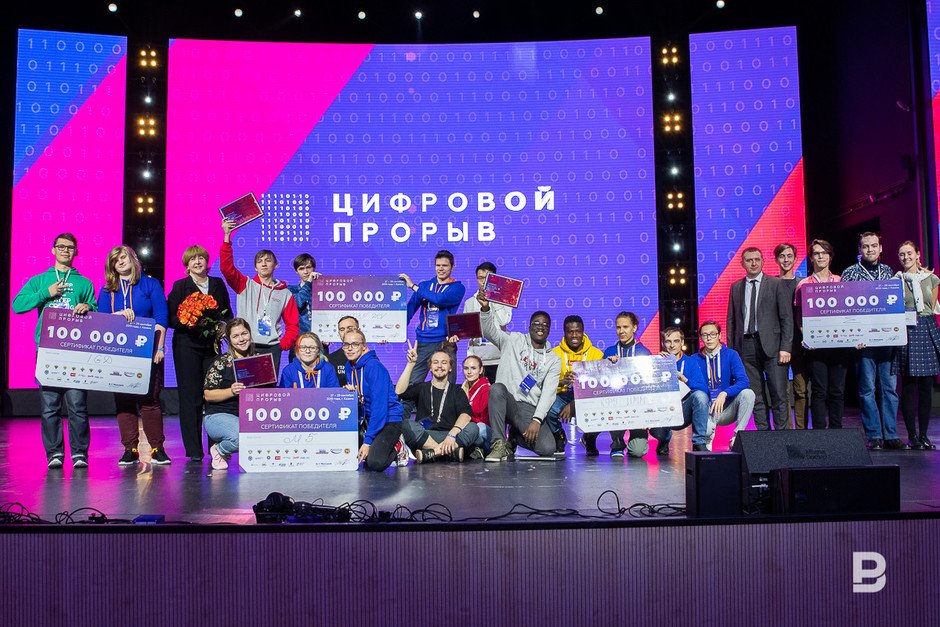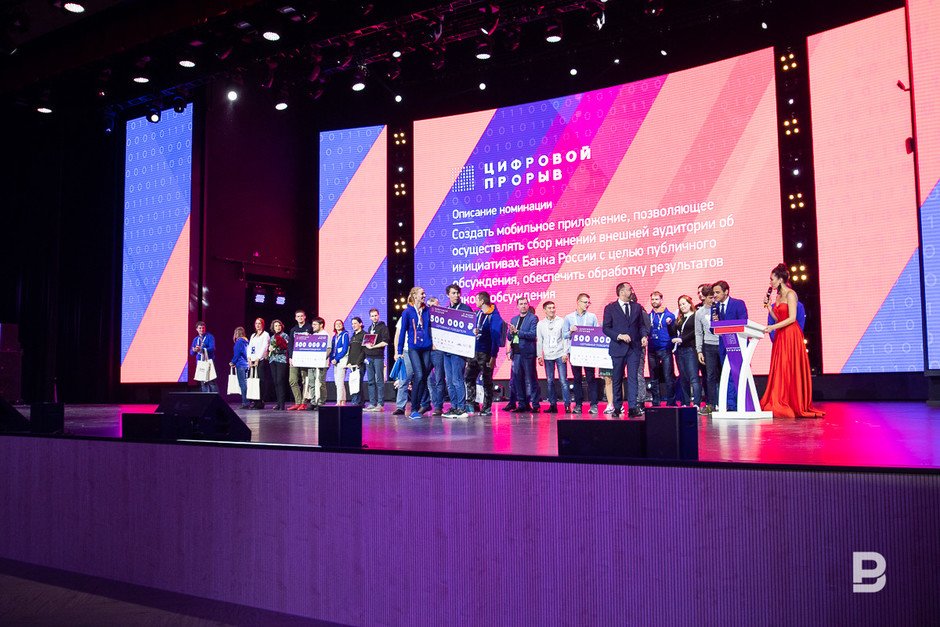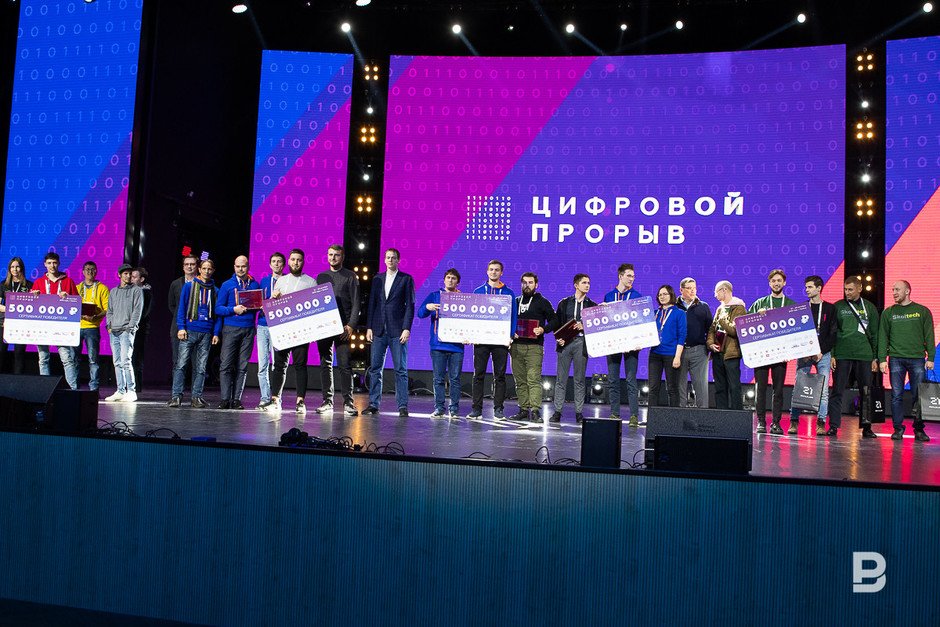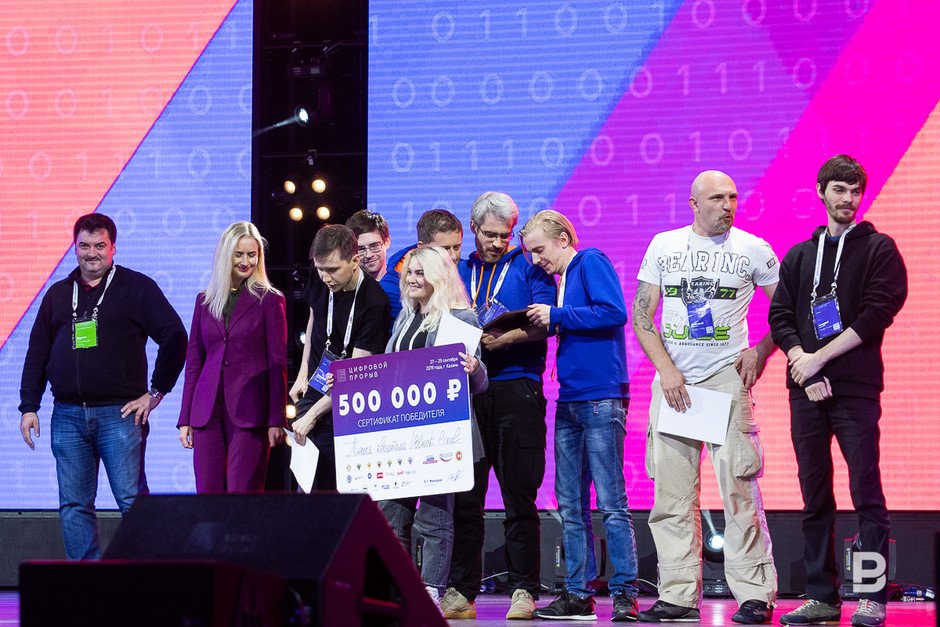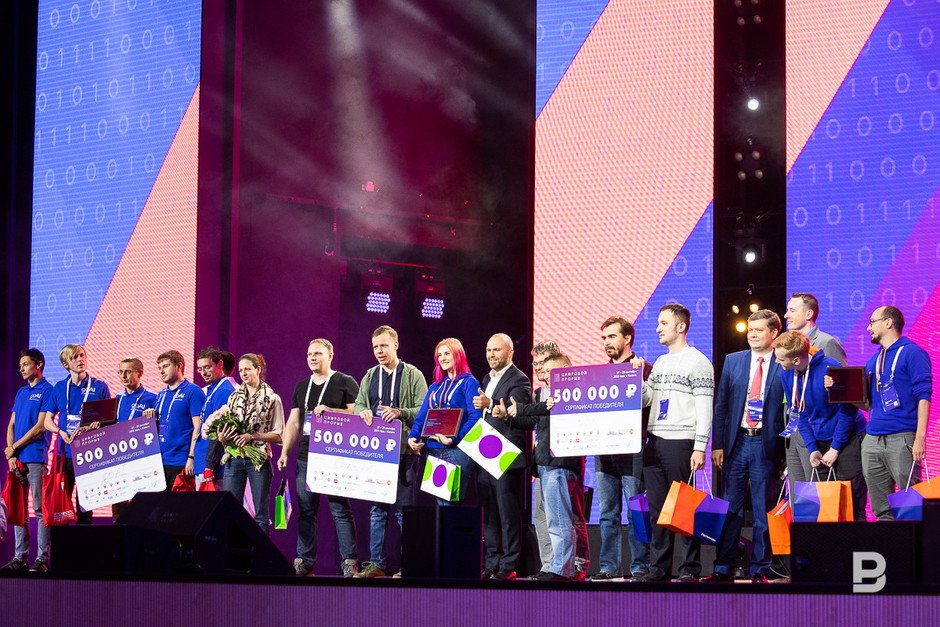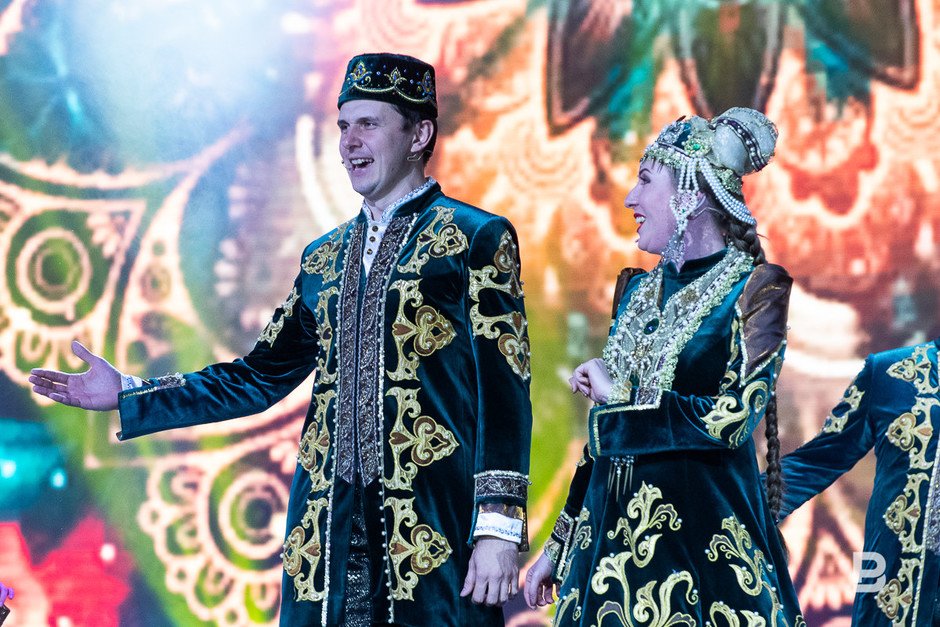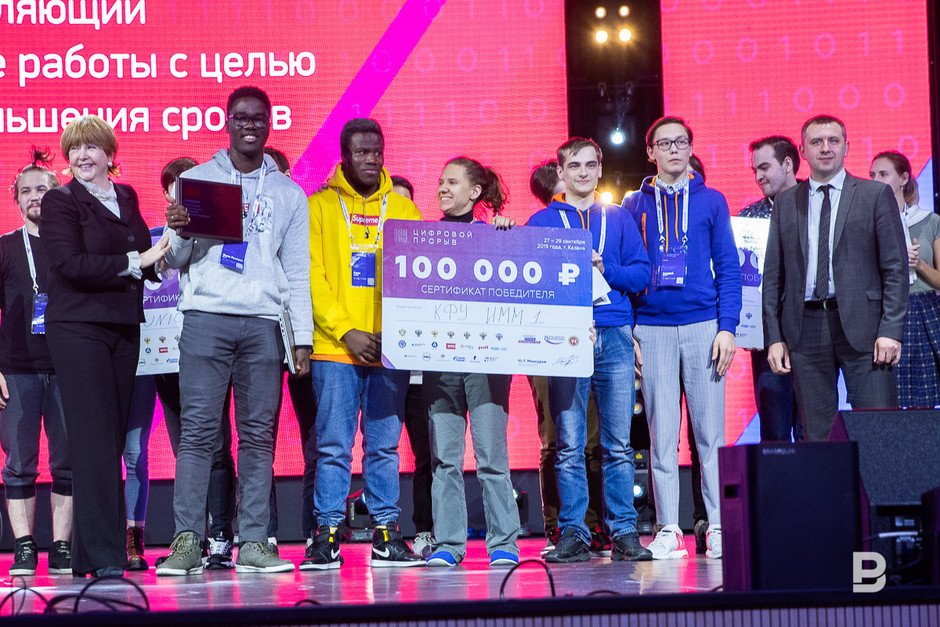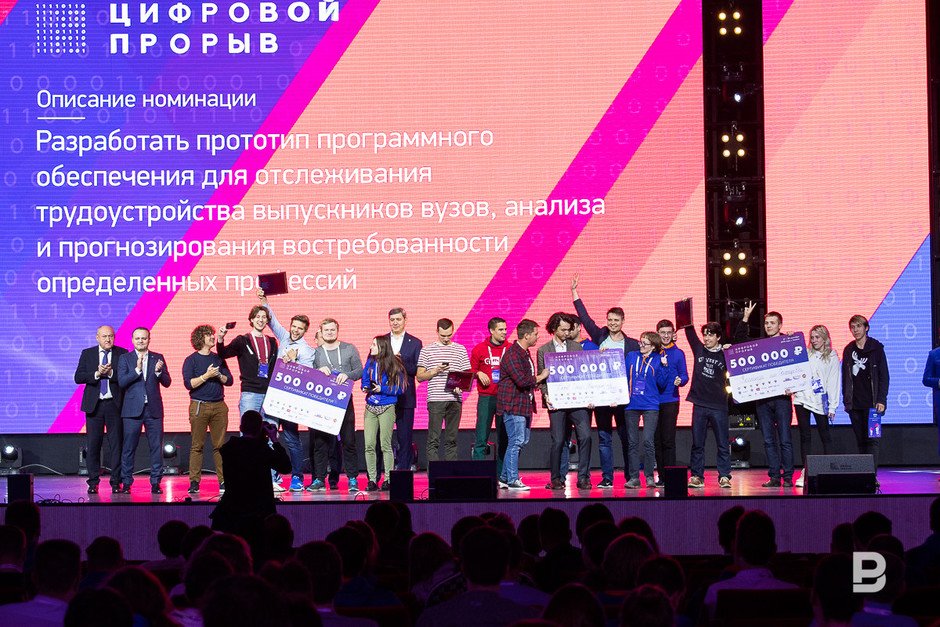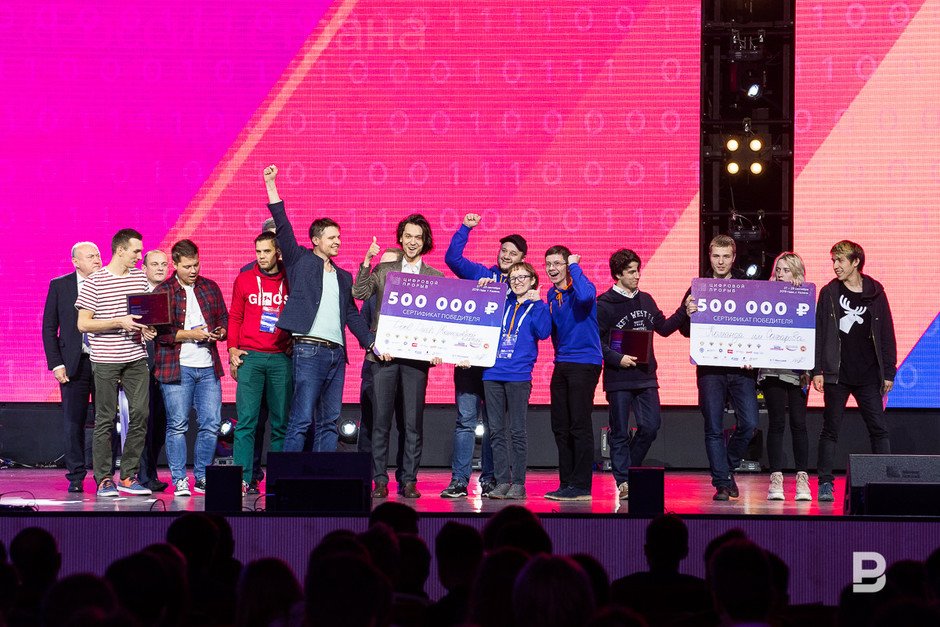How Kazan breaks Guinness World Record for the world’s biggest IT hackathon
Tatarstan teams won in 3 out of 26 tracks of the competition Digital Breakthrough
The world’s biggest hackathon ended in Kazan on 29 September — it was the final of Digital Breakthrough all-Russian competition of IT solutions, which the Tatarstan capital hosted at Kazan Expo International Exhibition Centre. 3,000 young IT gurus completed themed tasks in one of 26 tracks (nominations) during 48 hours without a break for sleep and rest. The biggest technology companies such as Megafon, Mail.ru Group, Gazprom Neft, MTS, Rostelecom and even Rosatom developed terms of reference for the competition, precisely designed for their tasks. In the end, 28 teams were recognised as winners — the guys split the prize money of 10 million rubles and got a chance to offer their developments to the competition’s partners. More is in Realnoe Vremya’s report.
Unlifted curtain and The Guinness Book of Records
The award and closing ceremony of Digital Breakthrough competition, which took place on 29 September evening, opened with a 10-minute off-the-cuff performance, which seemed to make all the organising team of the show sweat. The curtain lifting mechanism in Kazan Expo’s concert hall failed at the most decisive moment. While technicians tried to fix the problem backstage, silence reigned in the hall (Vice Chairman of the Russian Government Maksim Akimov, Tatarstan President Rustam Minnikhanov were sitting шn the first row), host Dmitry Yudin did his best to fill the heavy silence.
“Do you know what prospects the director of this event had? Our hopes were pinned on him… And he failed at the most decisive moment… I think I will be seeing it in my dreams in the next five years as well as to the two ex-stage workers who tuned the launch mechanism… And possibly the director of the concert hall,” Yudin joked receiving sympathising rounds of applause of the hall and making the honourable guests smile.
Finally, 10 minutes later, the curtain was lifted. And the viewers were fully awarded for the long waiting: before announcing the winners, the competition’s organisers prepared several pleasant surprises. The inclusion of the final of Digital Breakthrough competition to The Guinness Book of Records as the biggest hackathon in history is one of them. Over 3,000 people from 77 Russian regions who made it to the final and united in teams of 5-6 specialists competed at Kazan Expo at the same time.
So Kazan broke the previous record of the book: an IT competition in 2018, which took place in Saudi Arabia, gathered 2,950 participants. It should be noted that the Digital Breakthrough final is just the tip of the iceberg, because the qualifiers to the competition kicked off across Russia as early as in April, while about 66,500 applications were submitted.
The Guinness Book of Records' official referee Sheyda Subashi gave Director General of Russia is Country of Opportunities ANO, main organiser of the competition Aleksey Komissarov a certificate confirming the record onstage. A bit later Komissarov announced another achievement — it was made a decision to extend the hackathon. It was decided to make Digital Breakthrough competition annual.
The task we have, the organisers, jury, organising committee is quite simple, I just want no solution to get lost, so that this great labour of not only 3,500 people who were here but also all 40,000 people who joined the competition in April, at the very beginning, so that no page of these ideas will get lost
“Every line of programme code is our common chance to make people’s lives better and richer”
One of the most notable figures of the Russian technology industry without exaggeration was among the experts of the competition. Director General of Megafon Gevork Vermishyan, head of Federal Passenger Company Pyotr Ivanov, Senior Vice President of Rostelecom Kirill Menshov and Director of Digitalisation at Rosatom state corporation Yekaterina Solntseva were among them. Vice Chairman of the Russian Government Maksim Akimov, who also arrived in the closing ceremony of Digital Breakthrough, chaired the organising committee.
“A long way is behind — 48 hours of effort, labour, hopes, meeting, 48 hours of our big celebration, the world’s biggest digital event,” he addressed the competitors who were waiting for the results. “The most important thing that you remember that every line of programme code, all this crazy sequence of 1 and 0, it is our common chance to make people’s lives better, greater and richer. The task we have, the organisers, jury, organising committee is quite simple, I just want no solution to get lost, so that this great labour of not only 3,500 people who were here but also all 40,000 people who joined the competition in April, at the very beginning, so that no page of these ideas will get lost.”
The majority of competitors of Digital Breakthrough hackathon’s final are students of Russian engineering universities or their recent graduates. While the tasks the youngsters were offered to perform within 48 hours could make experienced specialists doubt their skills too. For instance, Rosatom gave a task to the competitors to develop a platform enabling to create a map of production premises of the enterprise, plan optimal logistic routes and track components, while MTS wanted them to offer a prototype of a platform to retrain specialists who are laid off in companies as a consequence of digitalisation.
“Many confuse hackathons and R&Ds calling a hackathon’s result projects. During the 48 hours given for the hackathon, the youngsters made just prototypes, designed an idea. To make something really worthy, promising, one has to remake everything completely. This is why the main value of hackathon isn’t the result but the team that is gathered here. I can say that every team whose result I have seen here has shown interesting ideas — somebody focused on a mobile app, somebody did on neural network and artificial intelligence, somebody — on the Internet of Things. And if we make up a construction set with these blocks, the result will very really cool. This is what we discussed with the experts in the jury,” Senior Vice President of Rostelecom Kirill told Realnoe Vremya.
Teams during hackathons are made up spontaneously, accidentally, while their participants will probably never see each other and often they won’t continue developing joint ideas, the expert noted. But spending many hours in hackathons without sleep, they get a chance to see how others work and attract other specialists with similar ideas and views after the competition ends by launching joint development but already with access to potential purchasers.
“There is a minimum and maximum programmes. The minimum programme is just to give the youngsters to implement their project, but it seems to me that we should give more ambitious tasks,” Menshov explained commenting on the next prospects of hackathon winners. “For instance, to not only help Rostelecom to do something but help the youngsters to create their company that could later sell their solutions, while we could be its strategic partners.”
Tatarstan teams won three tracks, but Moscow keeps the records
The awards and congratulatory speeches of the top management of the biggest Russian digital companies in that evening alternated with light shows, étude by invited hosts Gulnaz Safarova and Russian actor Mikhail Bashkatov, a performance of the evening’s headliners among whom the spectators especially warmly welcomed soloist of Brothers Grimm Konstantin Burdayev.
The announcement of winners took more than 2,5 hours, which is no surprise — the finalists of 20 main nominations of the competition and six tracks of the Ministry of Science and Higher Education of Russia got the awards. They split the 10 million rubles of prize money and got an opportunity to test their projects with the hackathon’s partners.
The teams representing the Republic of Tatarstan won in three nominations of Digital Breakthrough — in a track of the Ministry of Informatisation and Communications of the Republic of Tatarstan (the Tatarstan team shared the award with representatives of Tula Oblast) and two nominations of the Ministry of Science and Higher Education of the Russian Federation. 17 Tatarstan teams in total reached the final. Moscow became the most awarded champion — teams from the capital won in eight nominations at once, representatives of Saint Petersburg got five awards.
